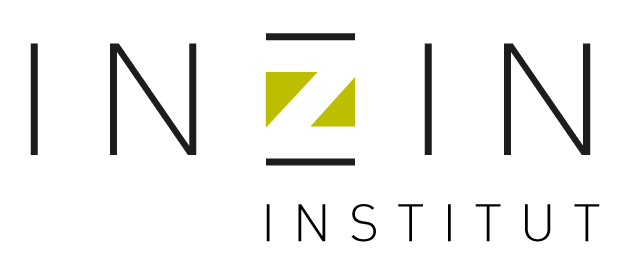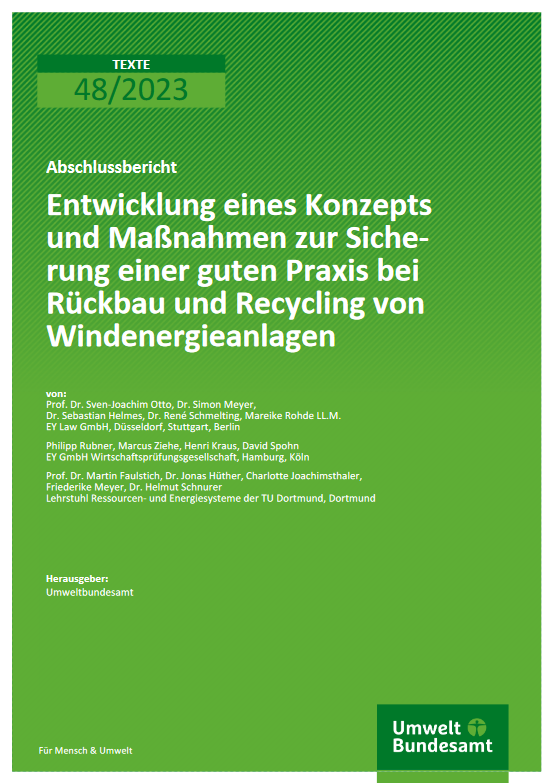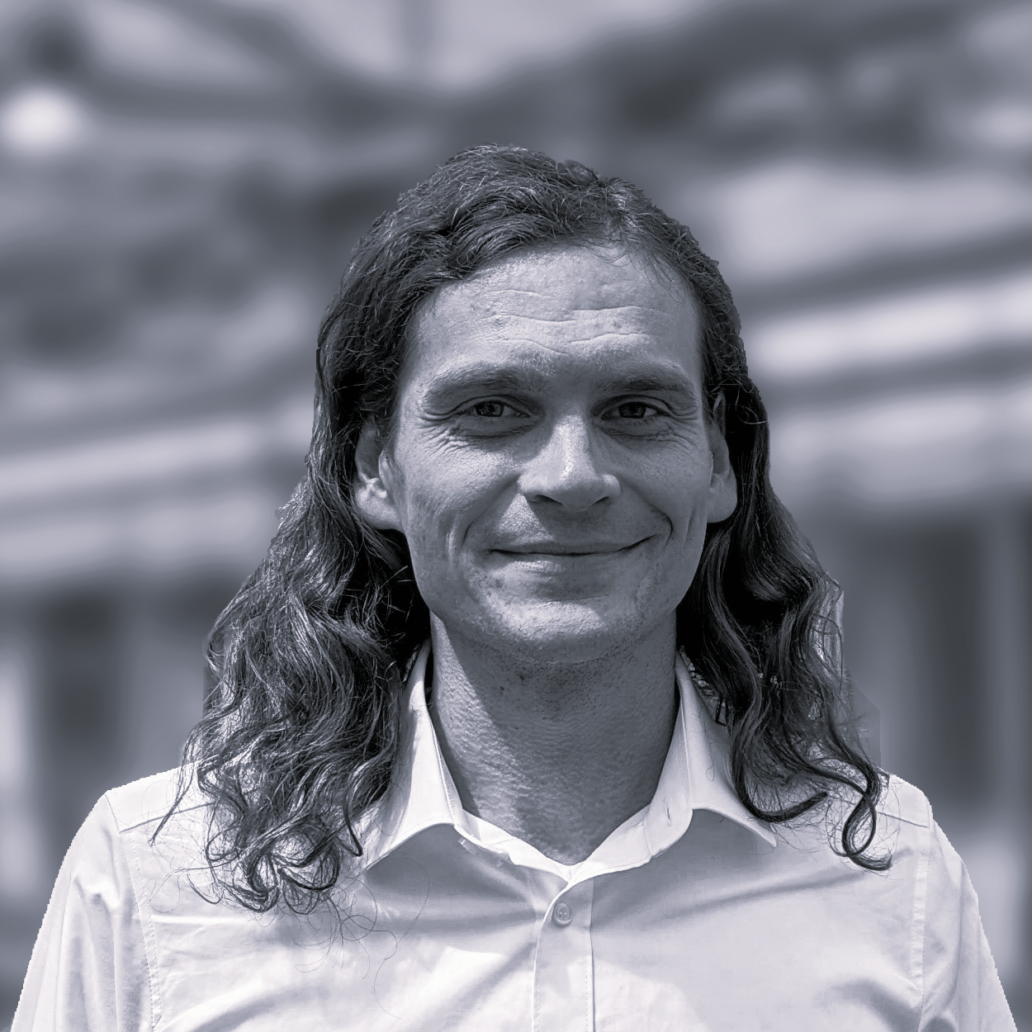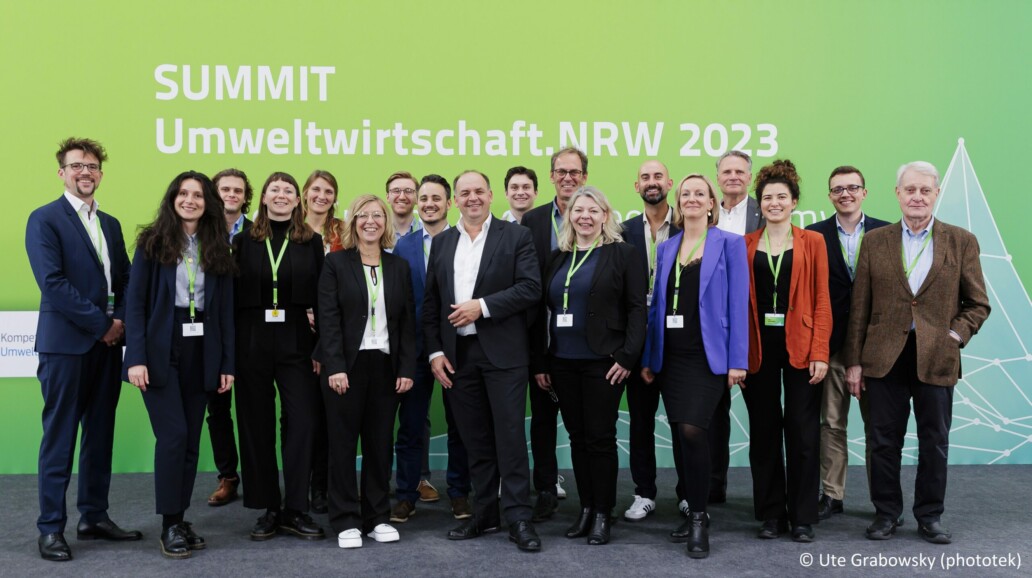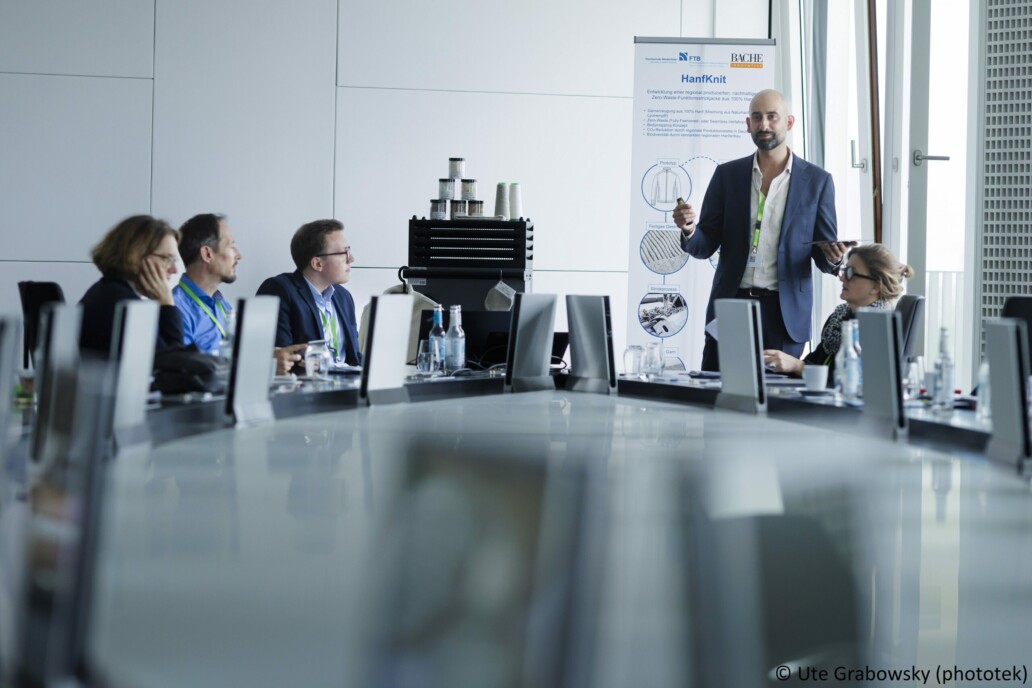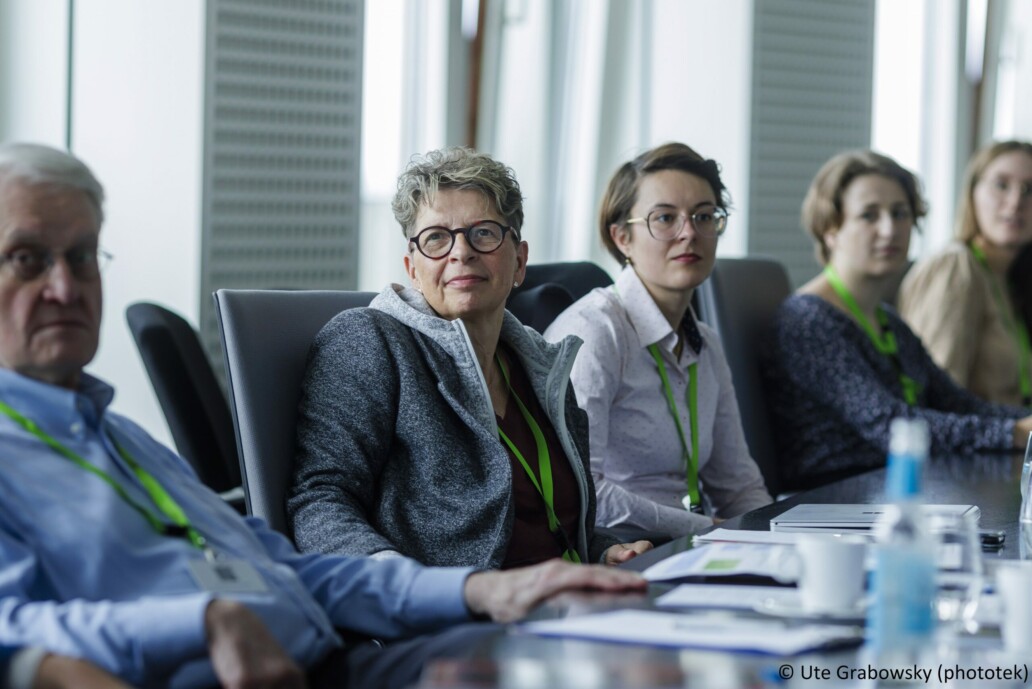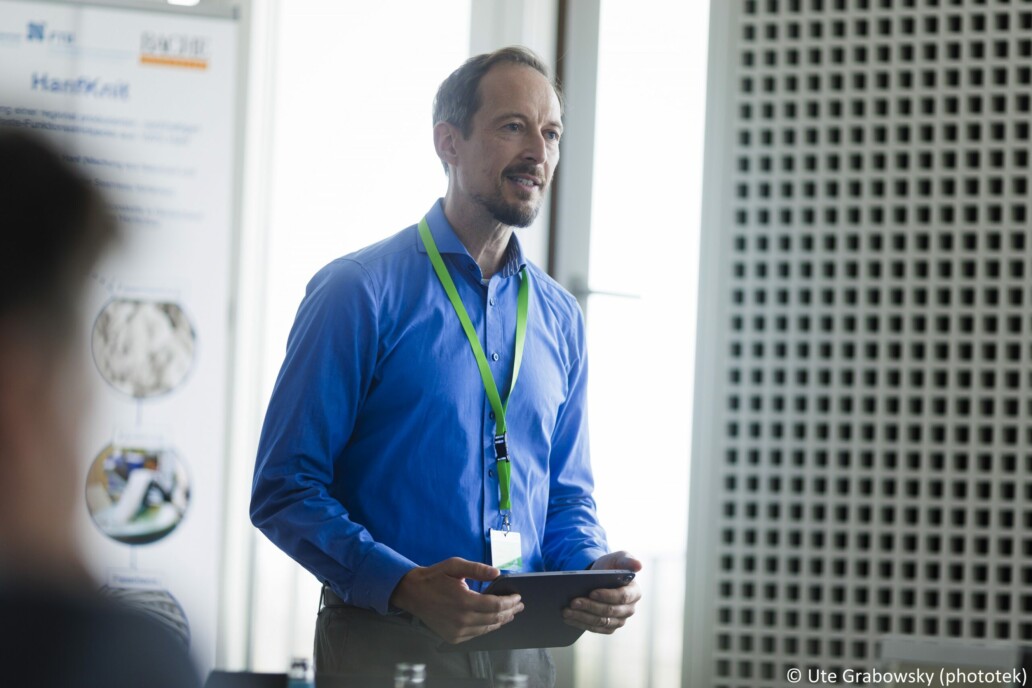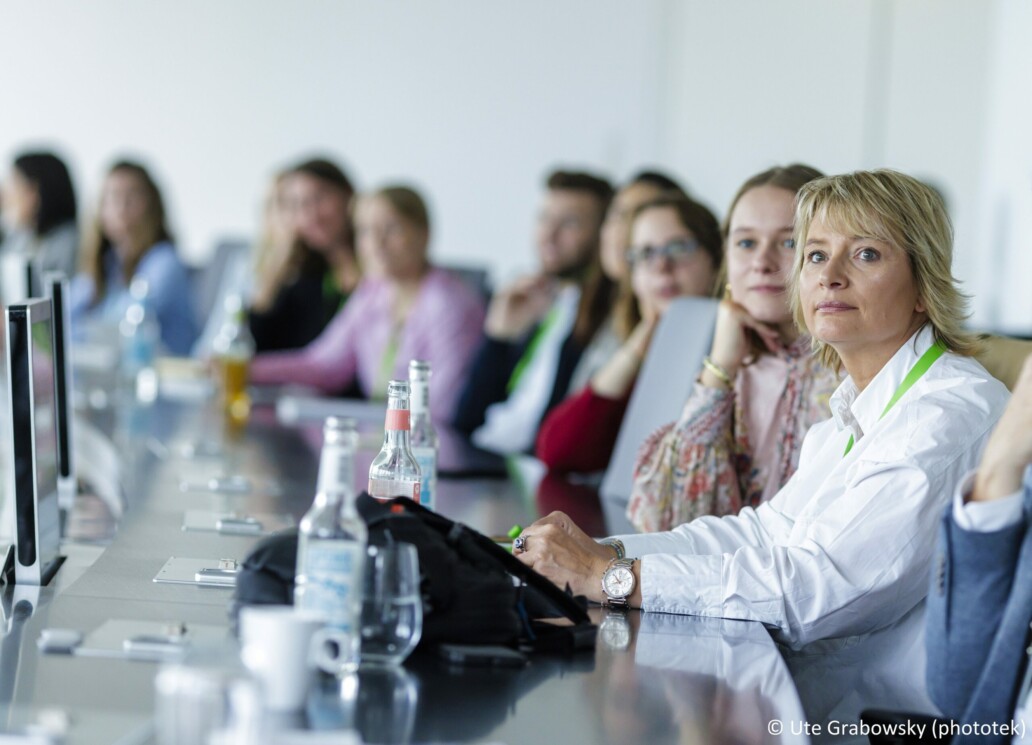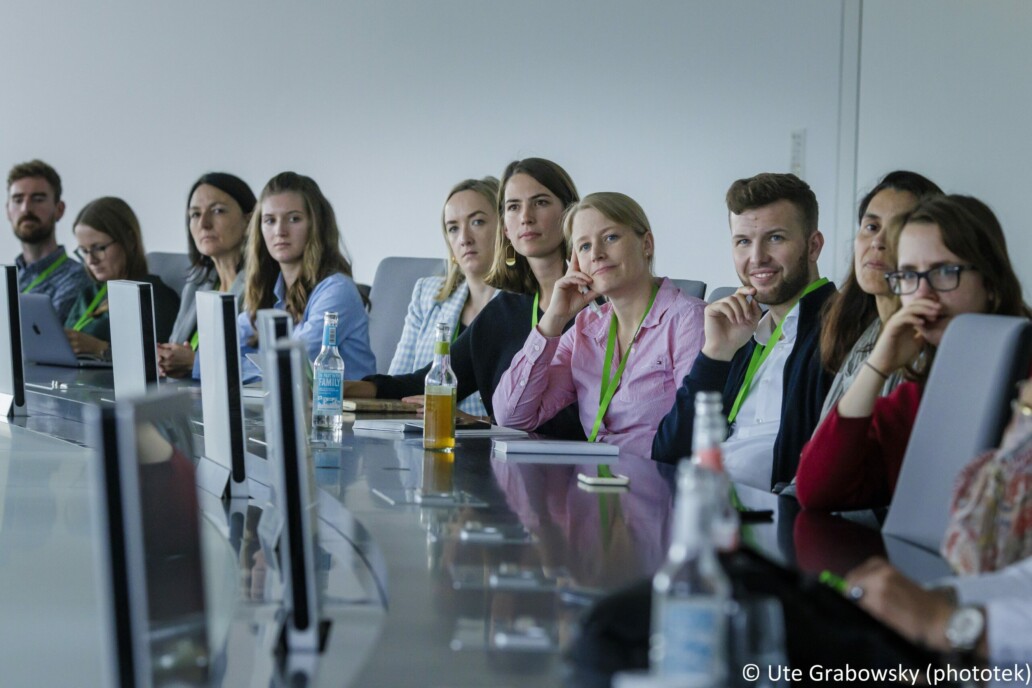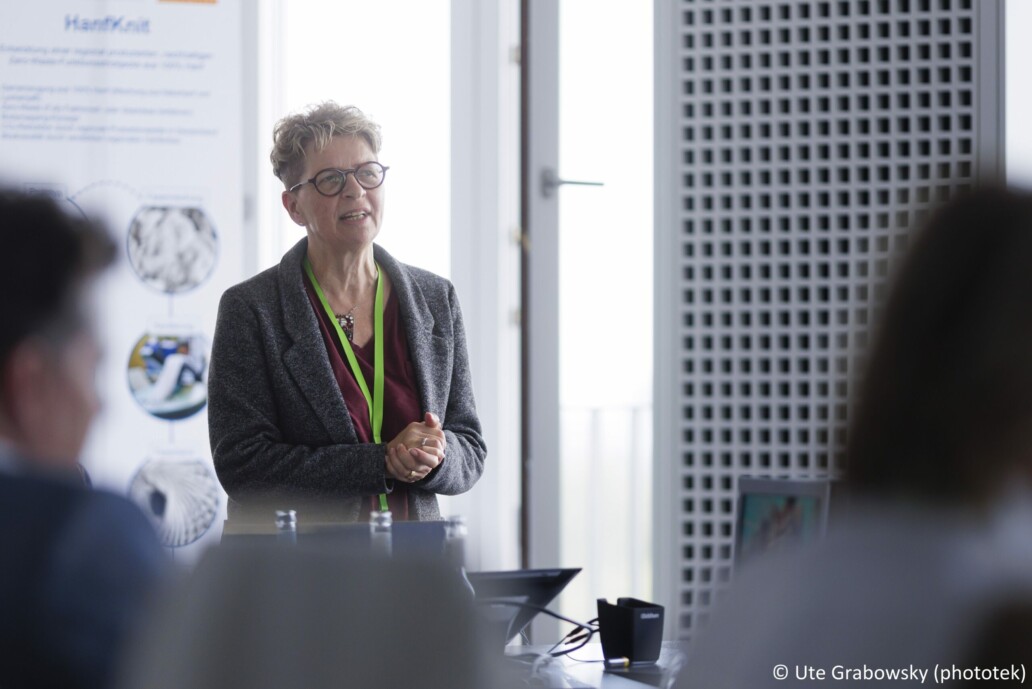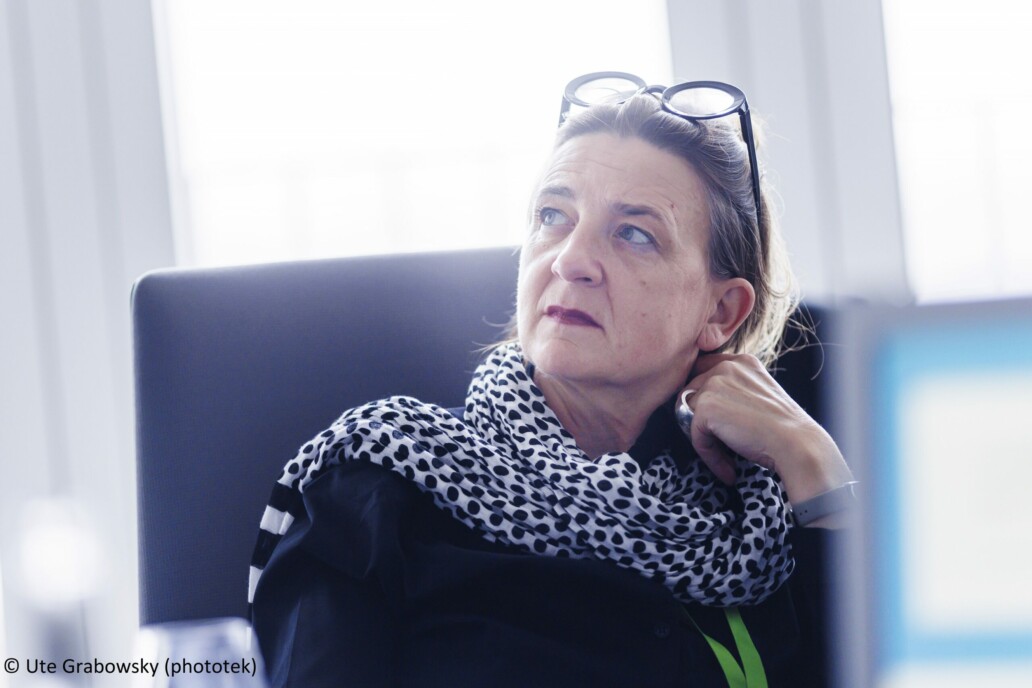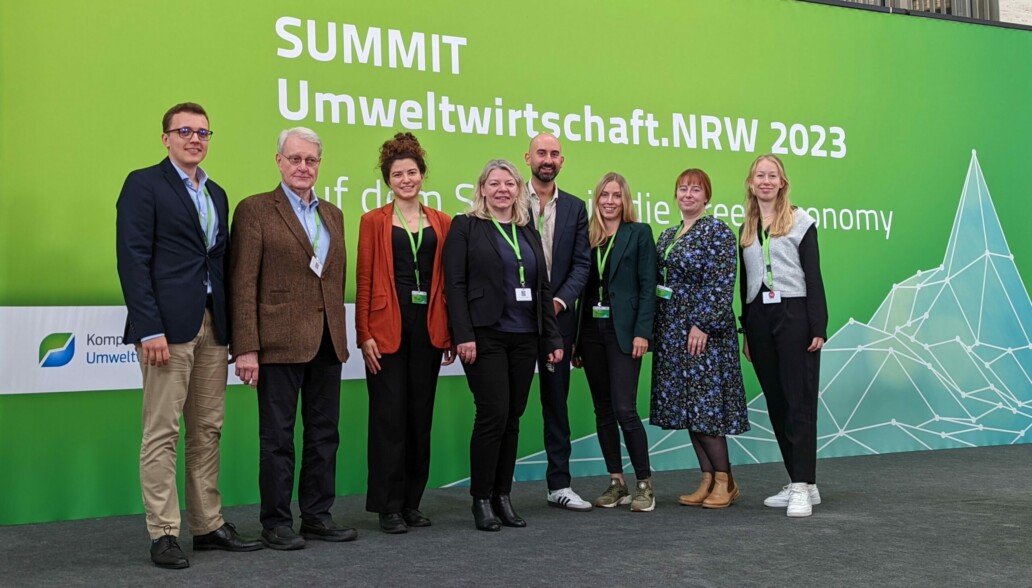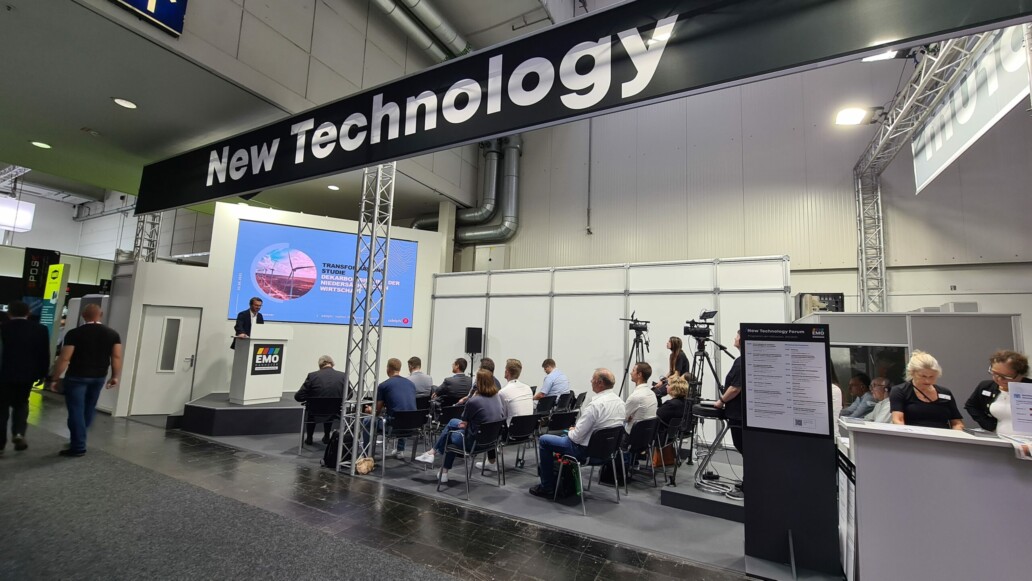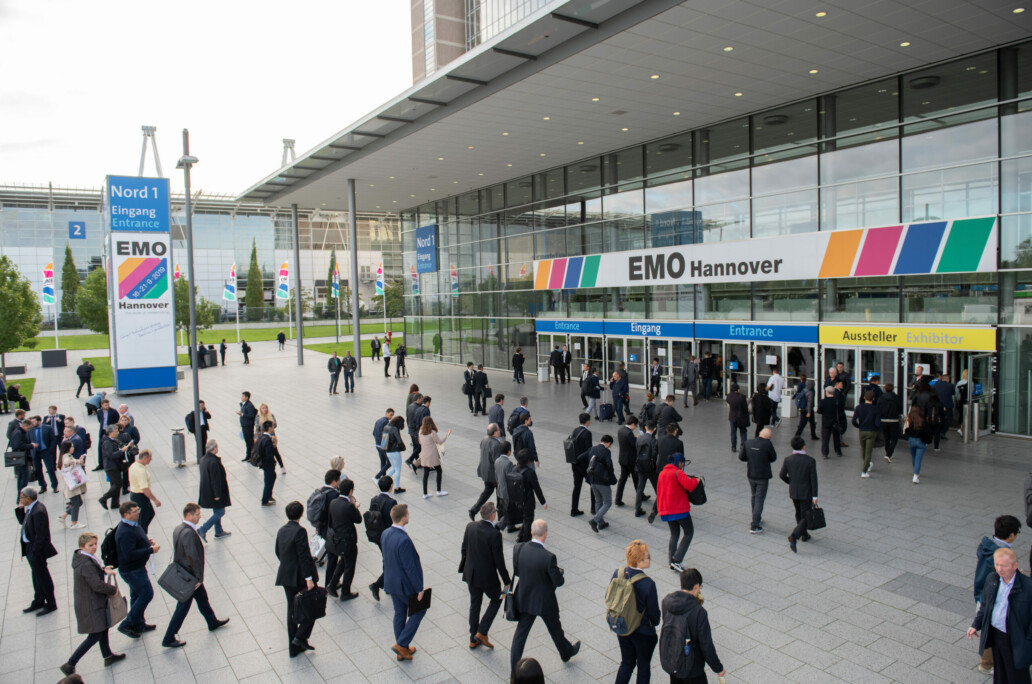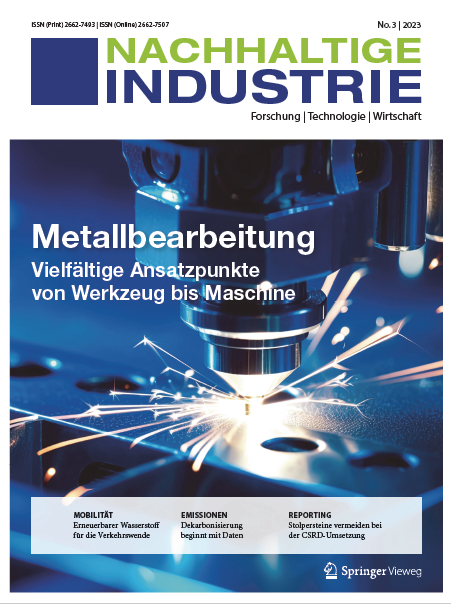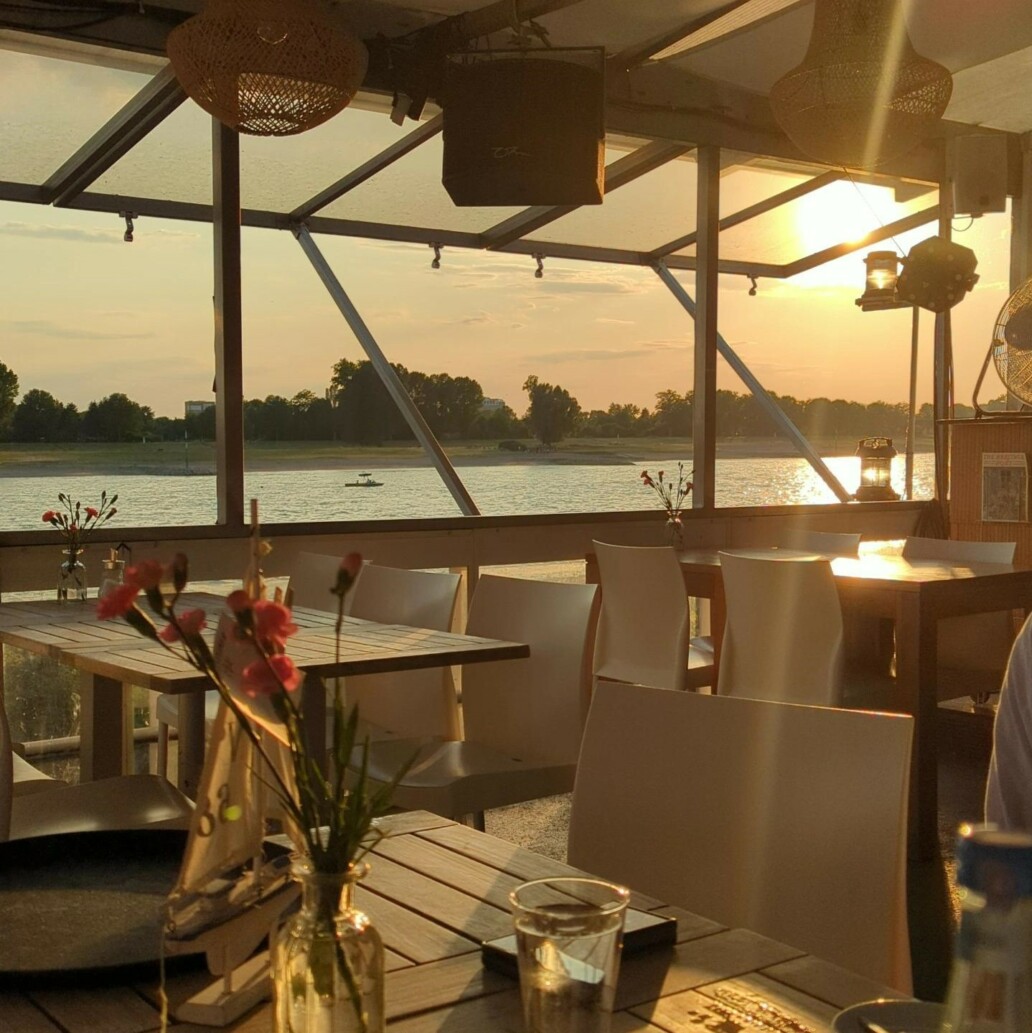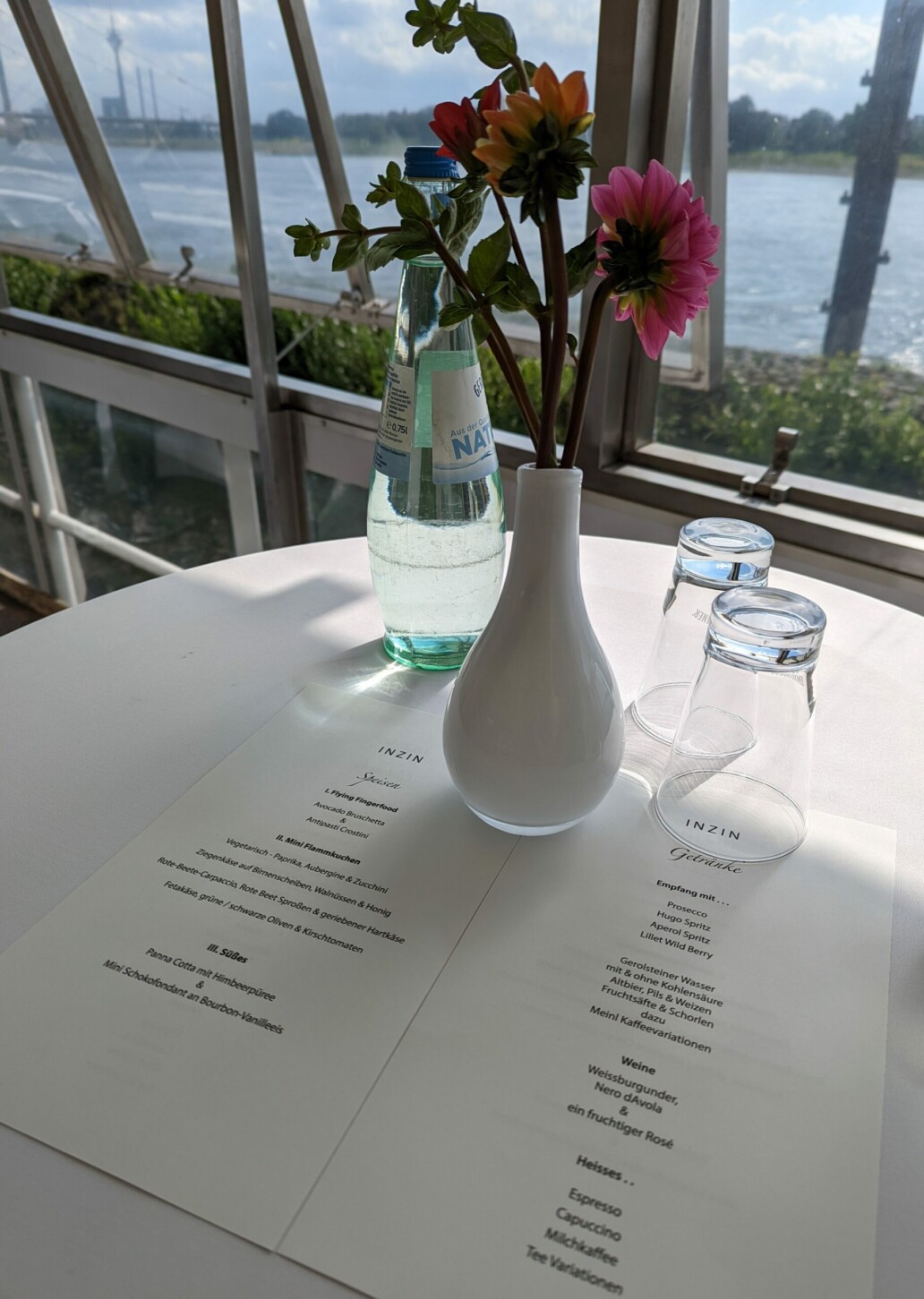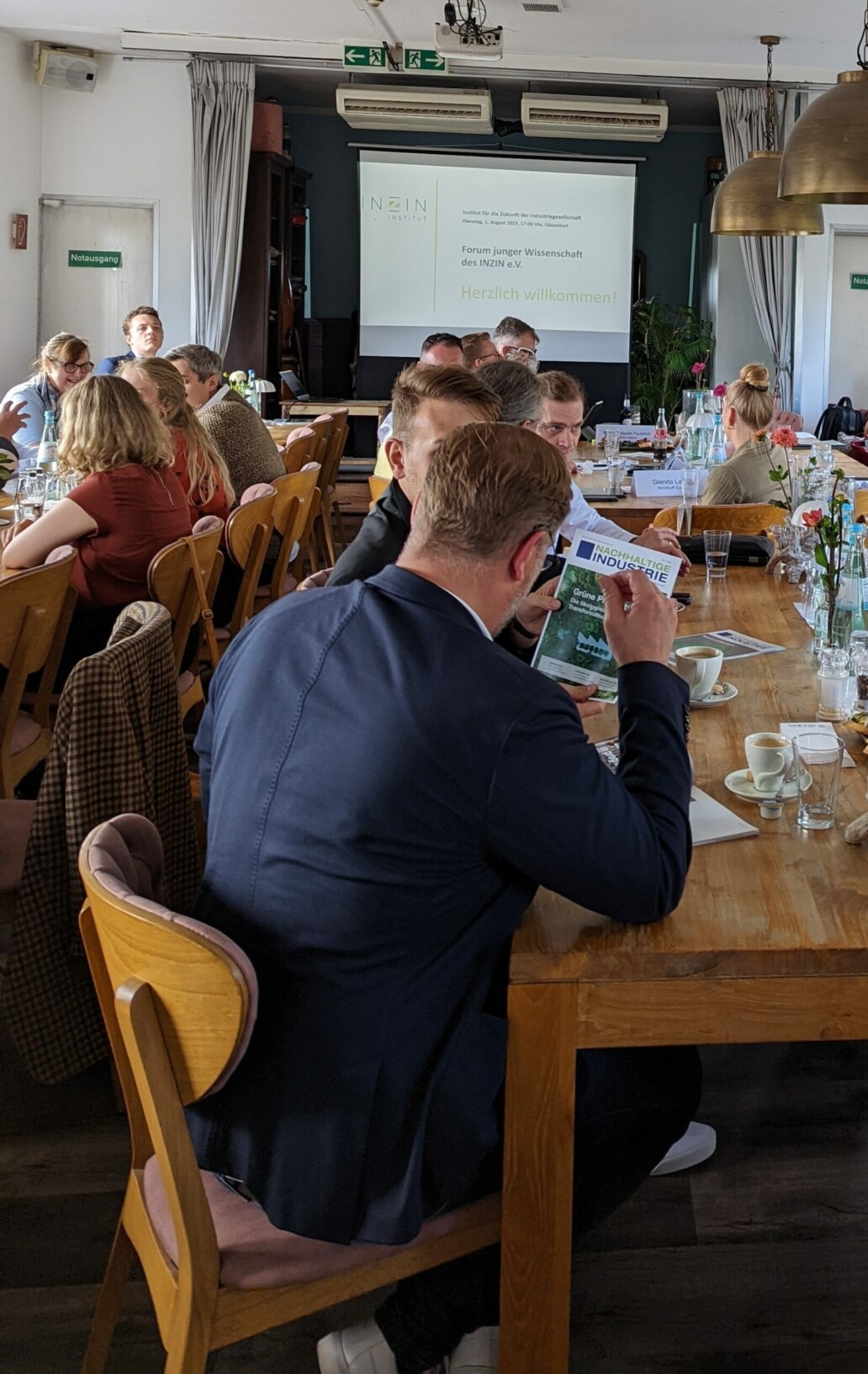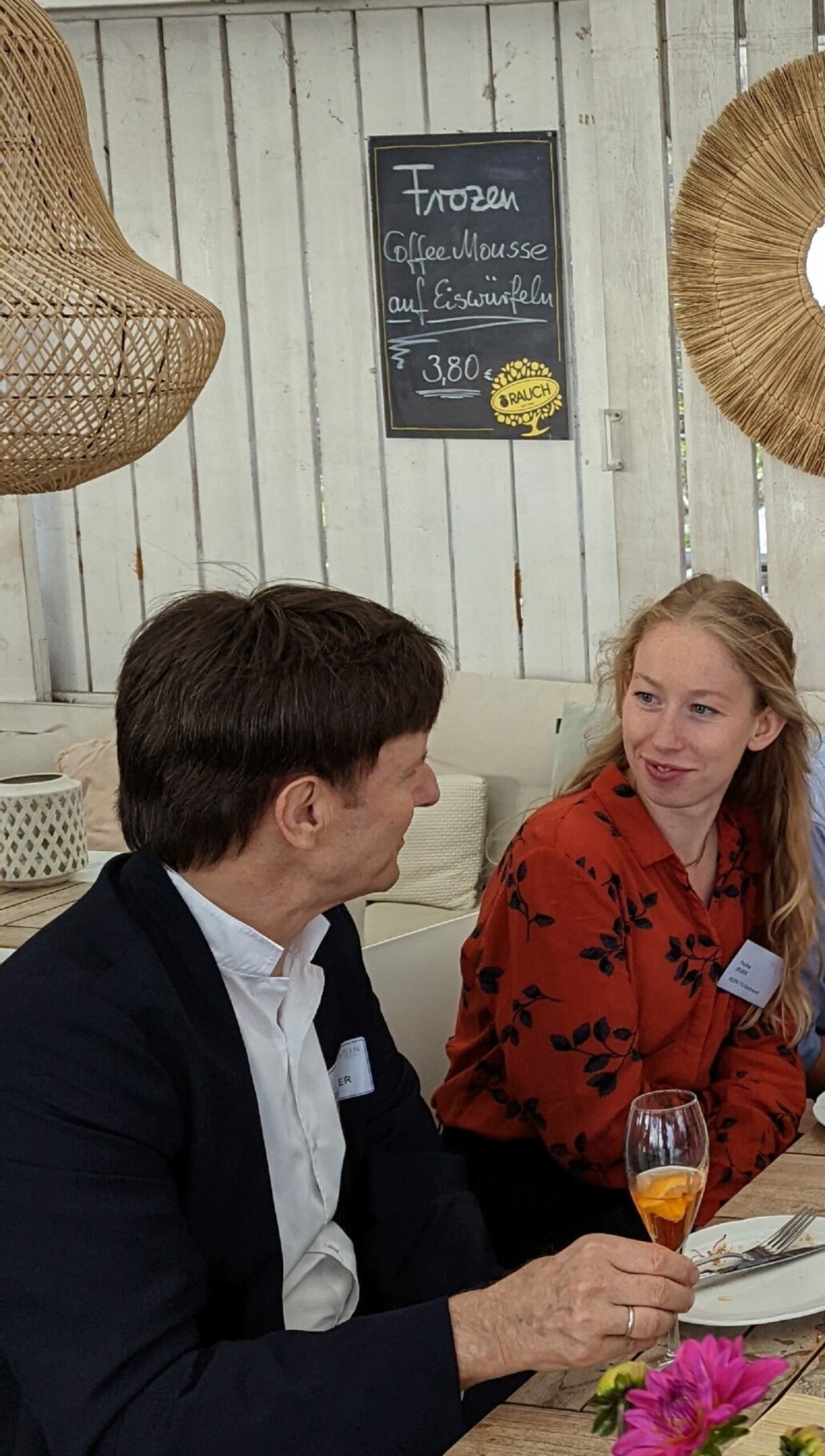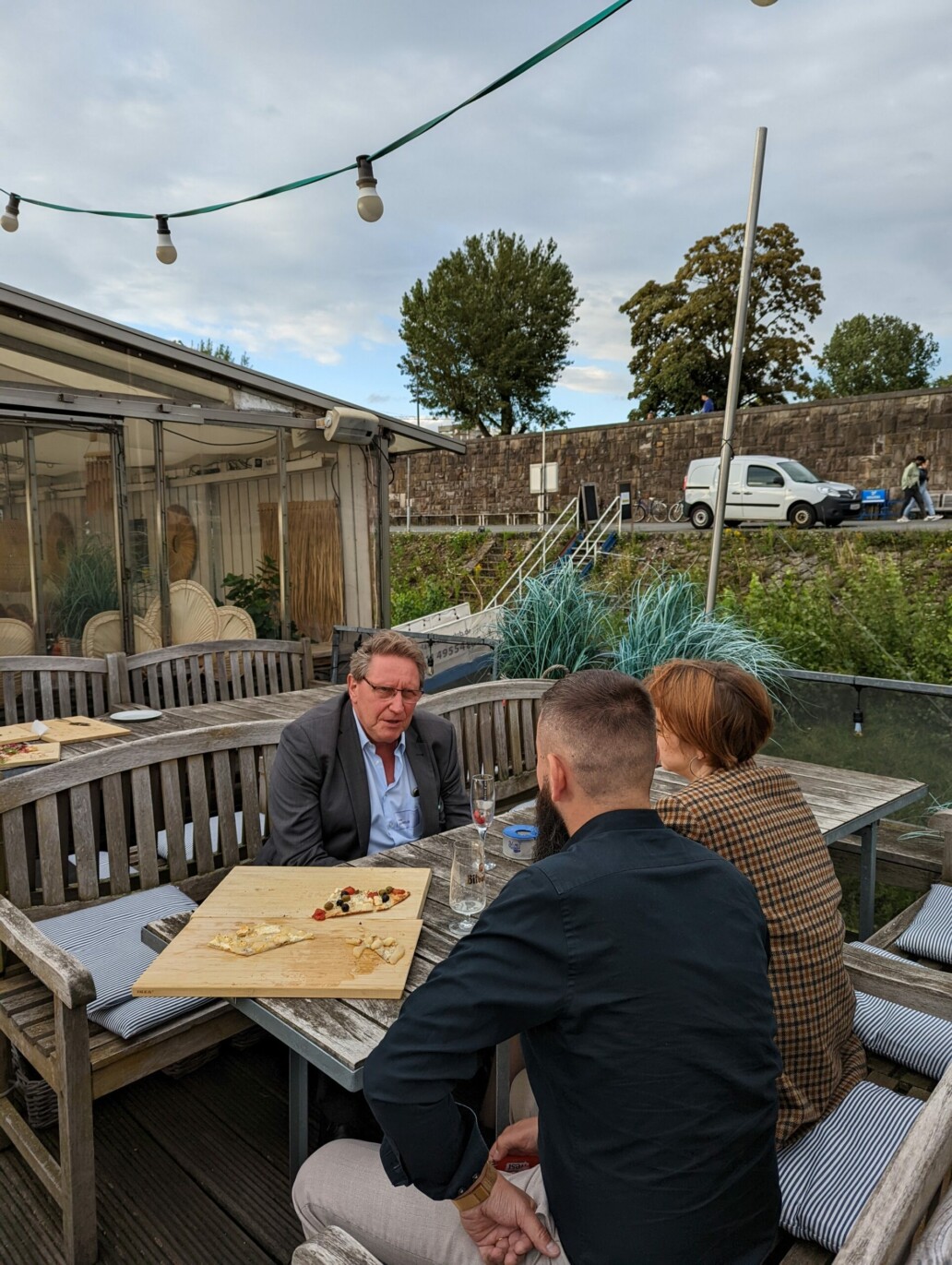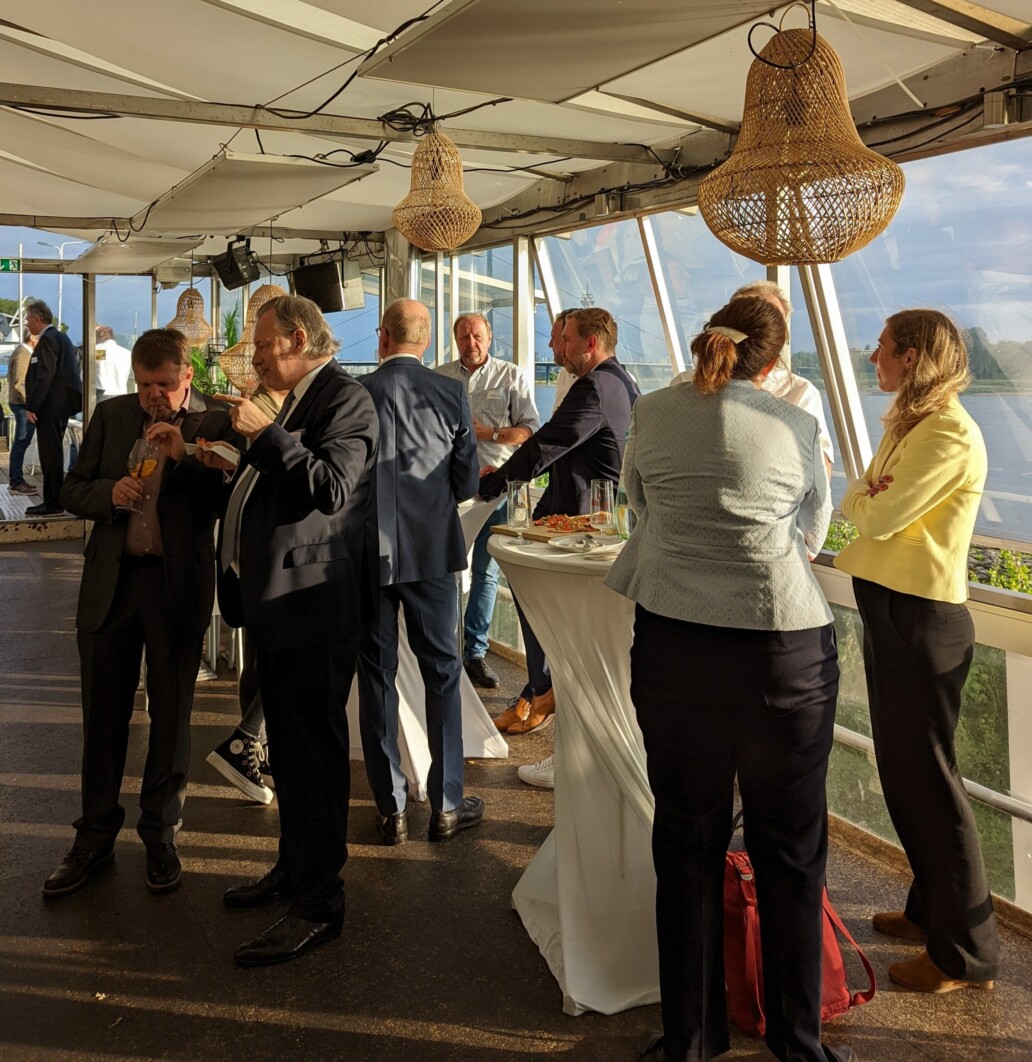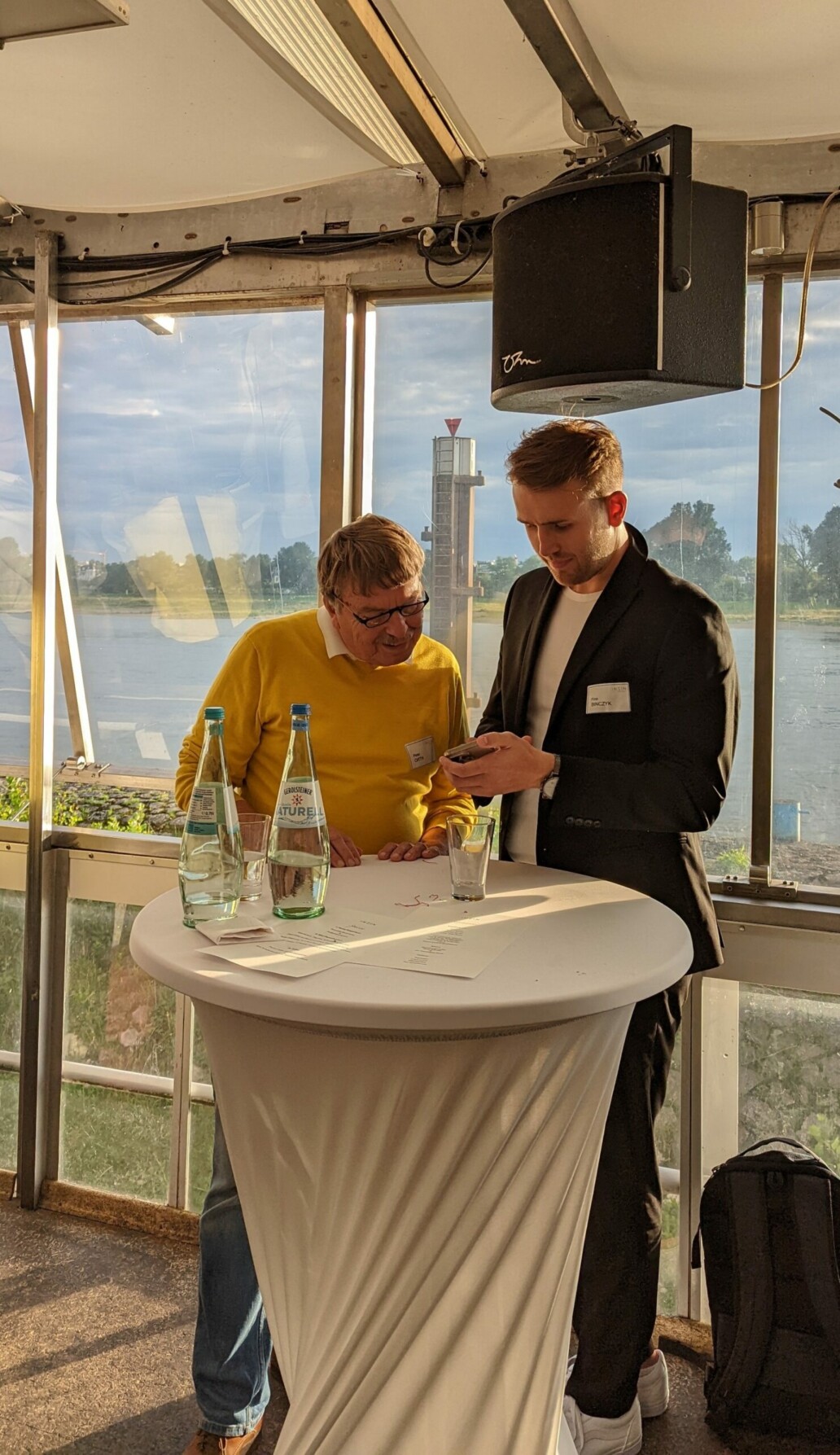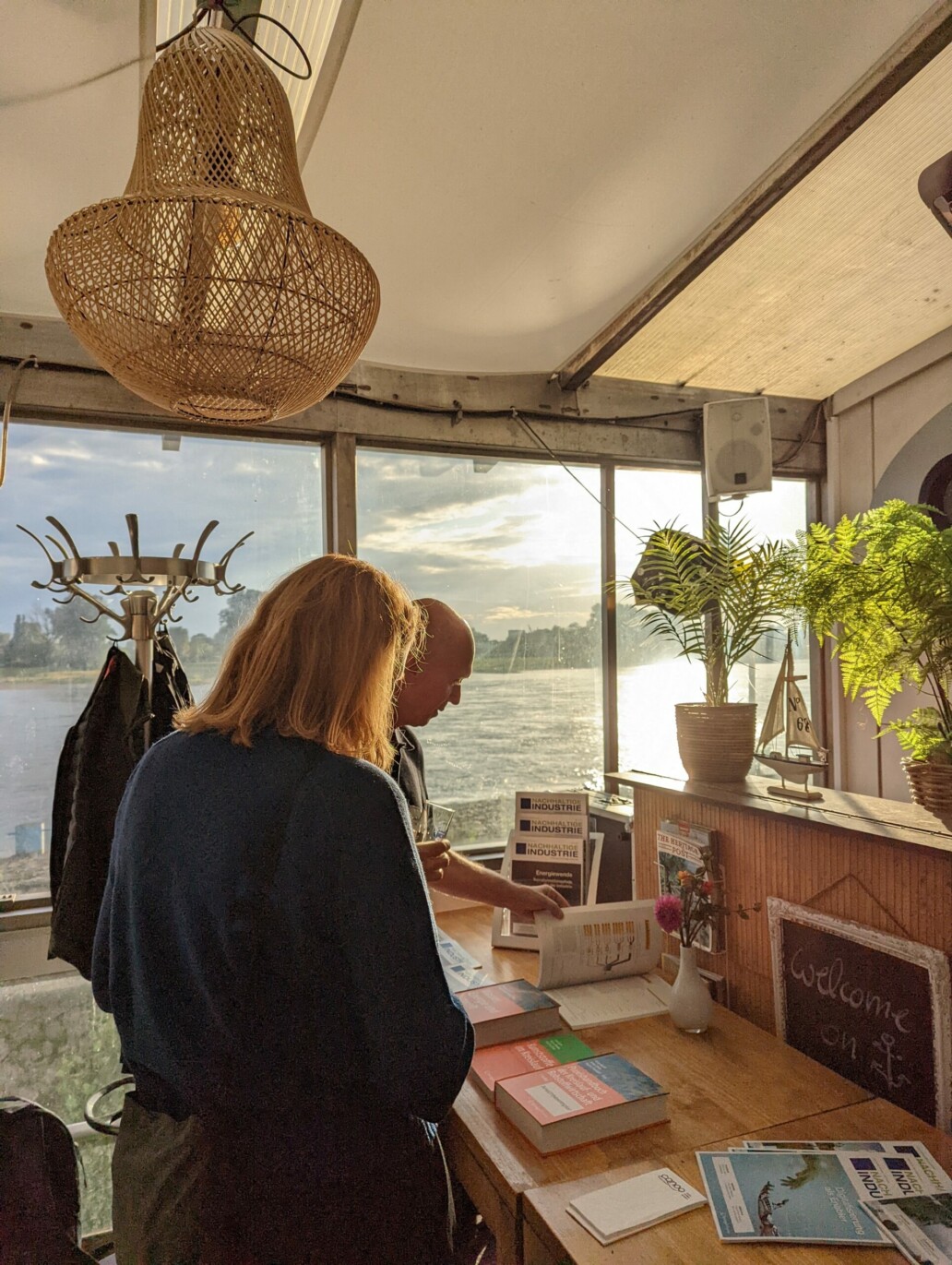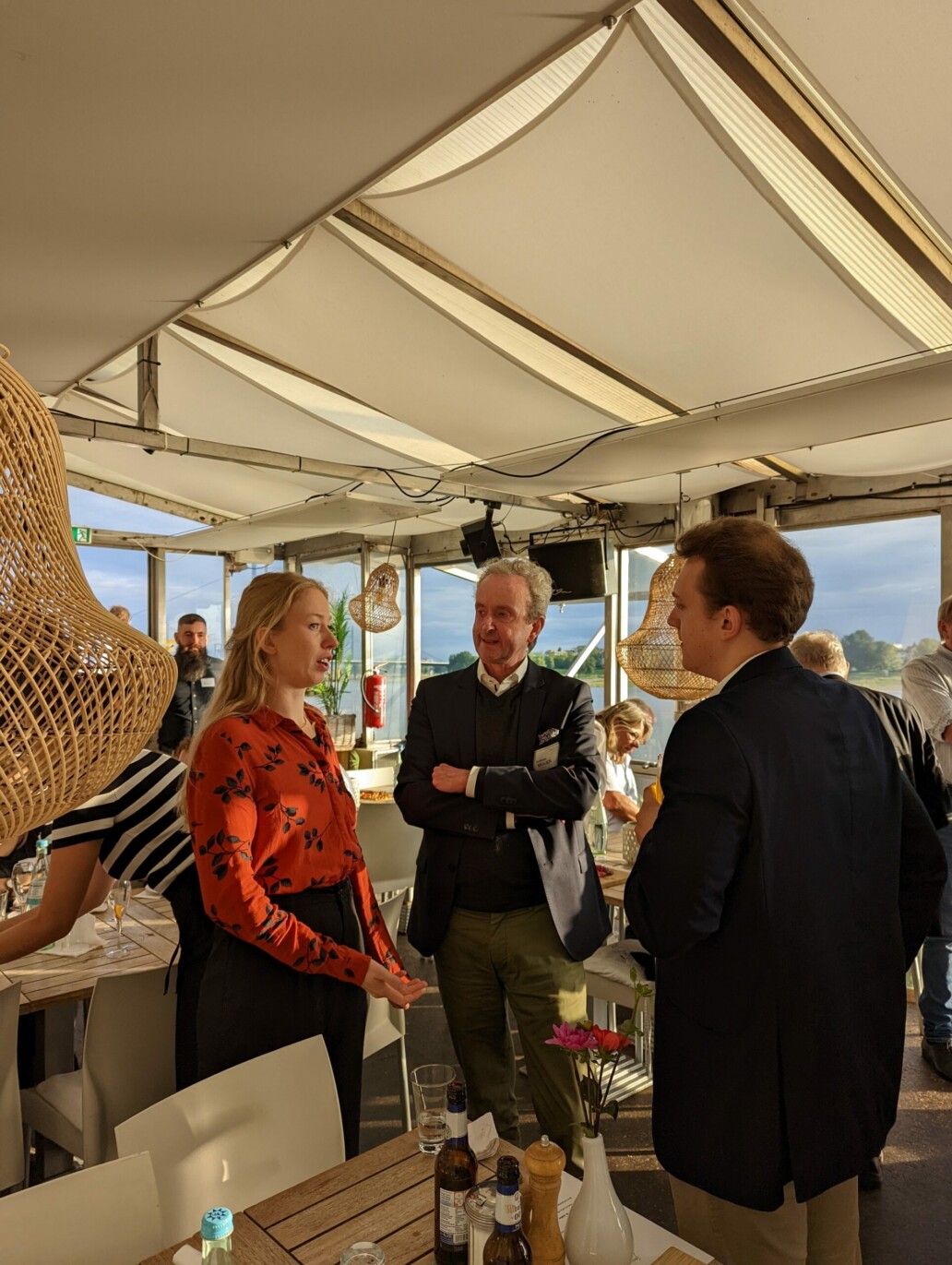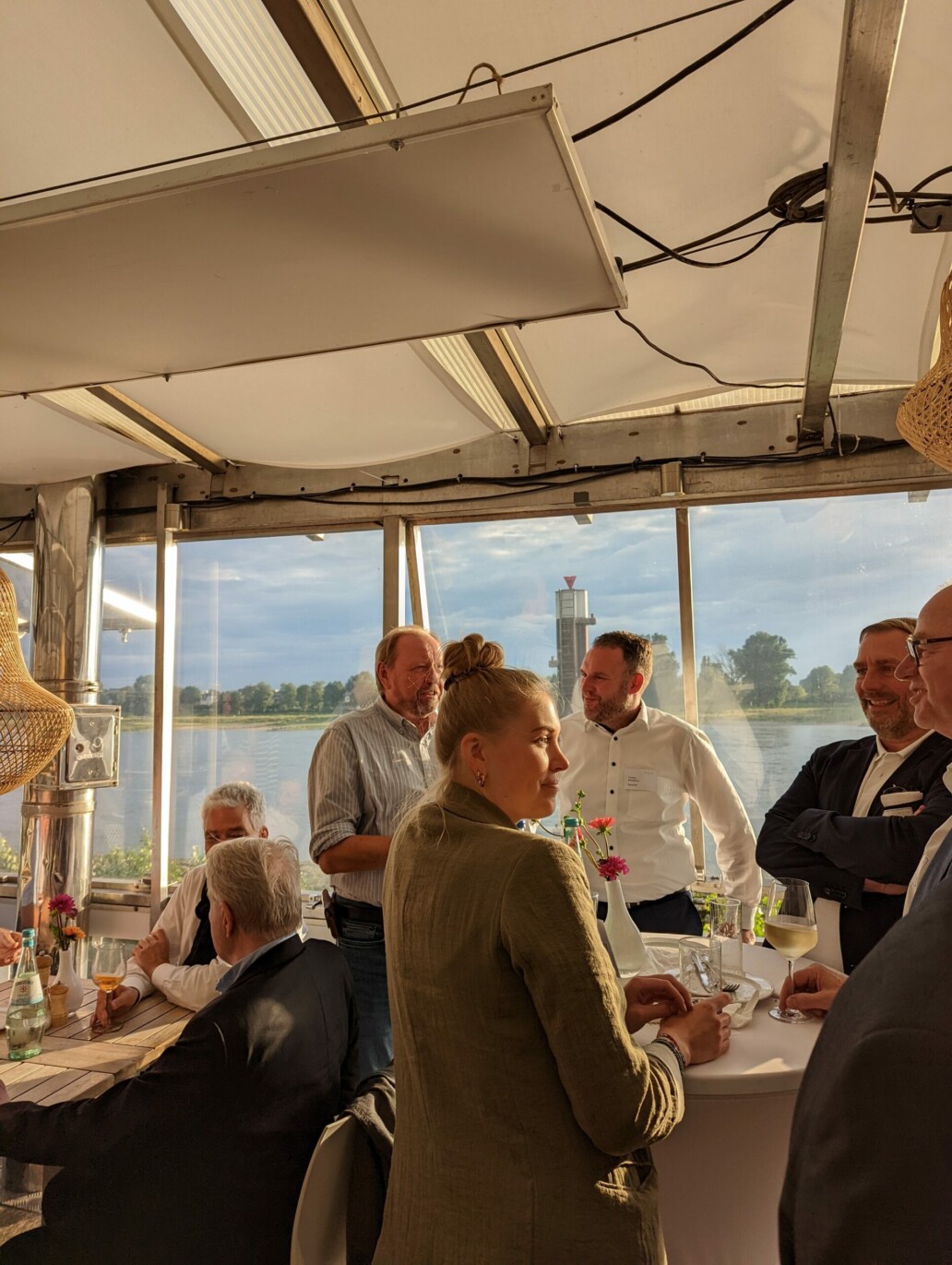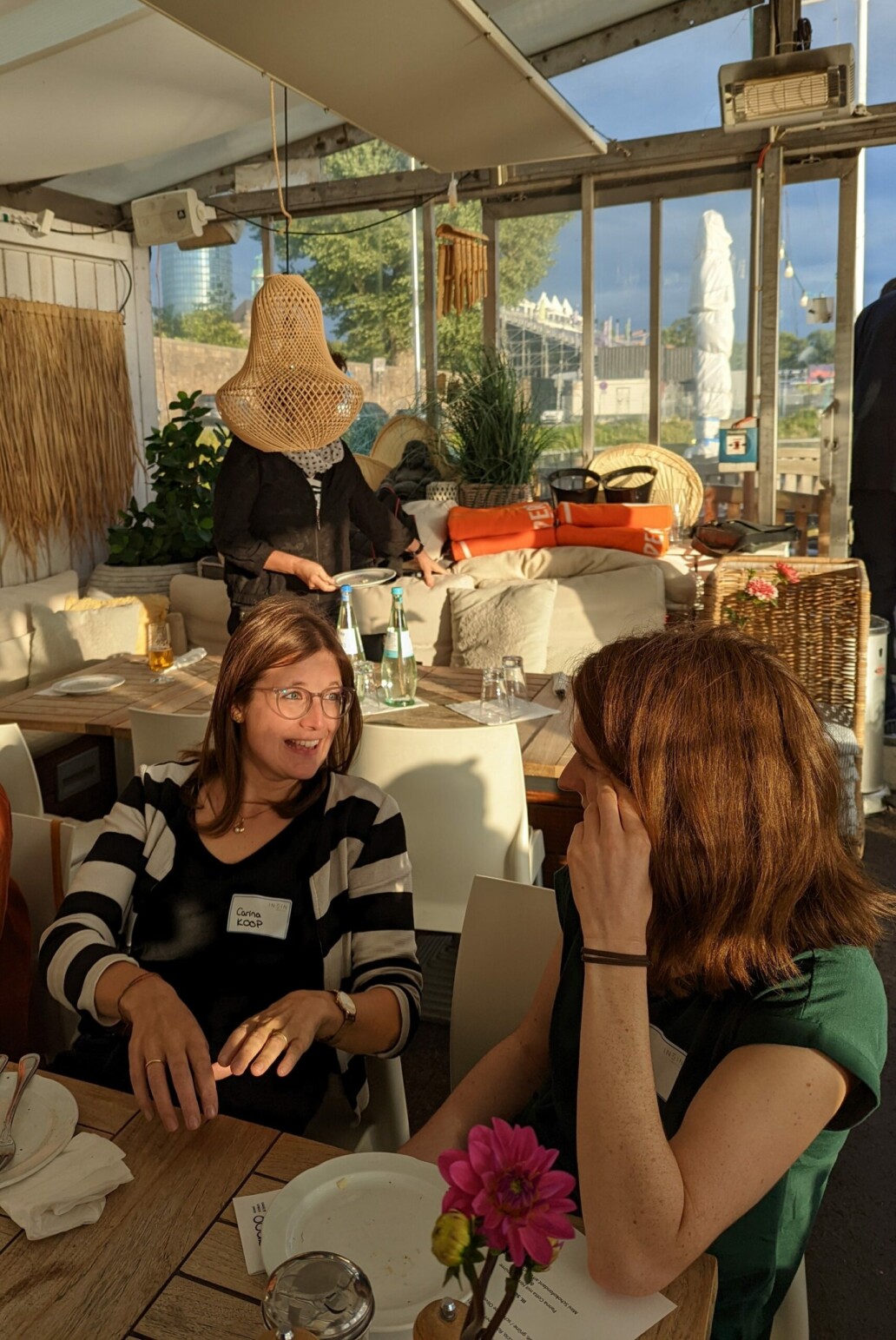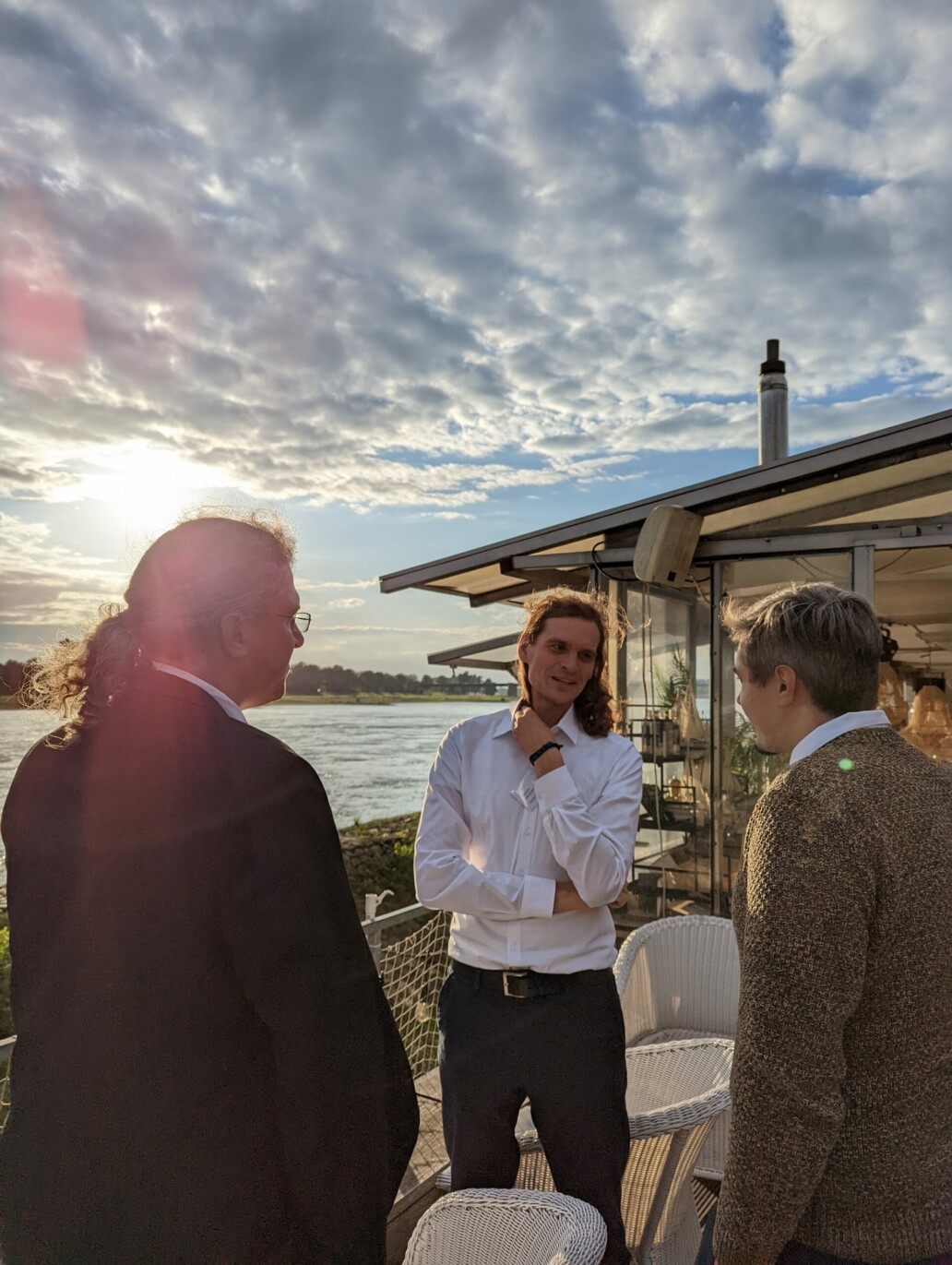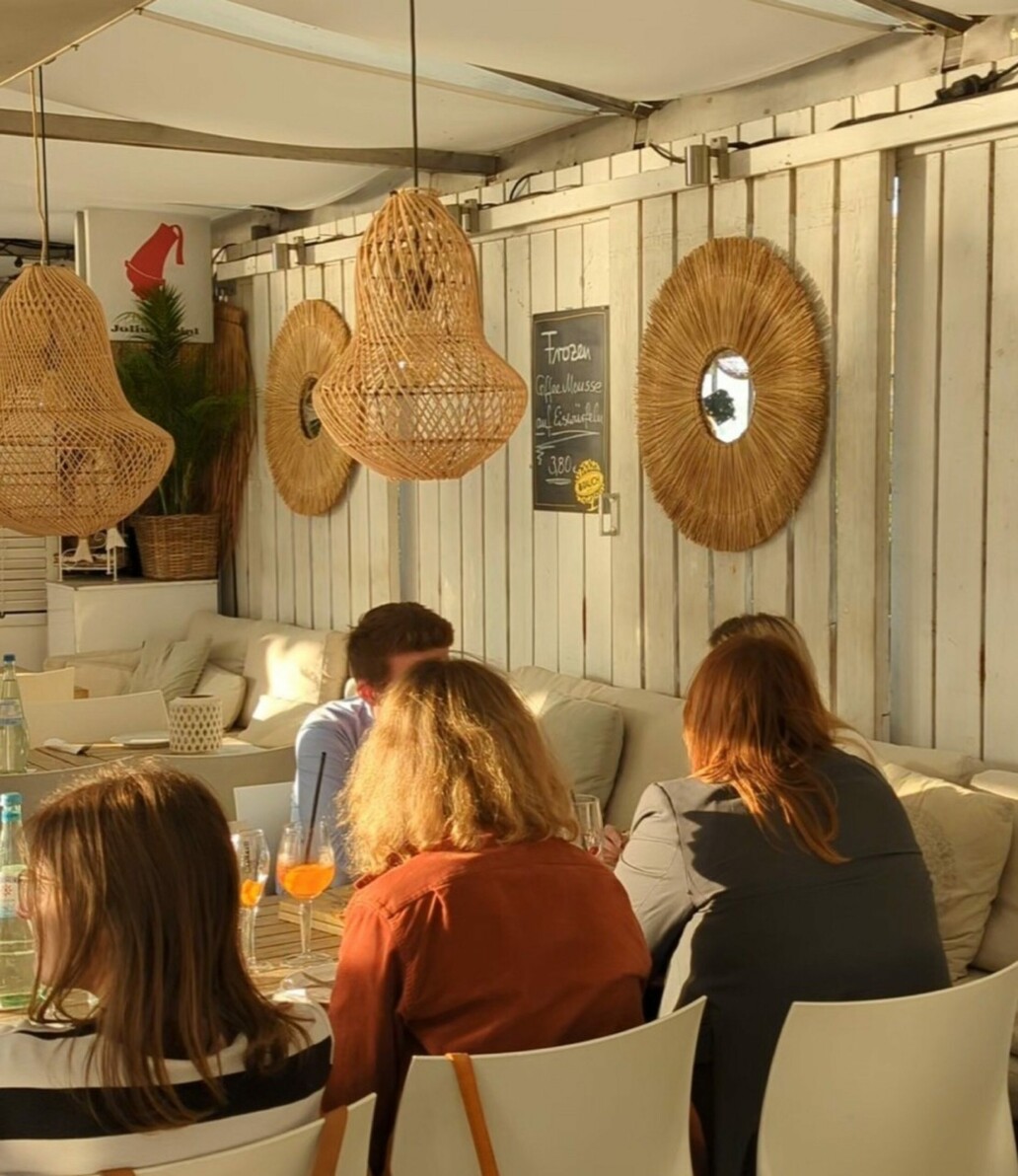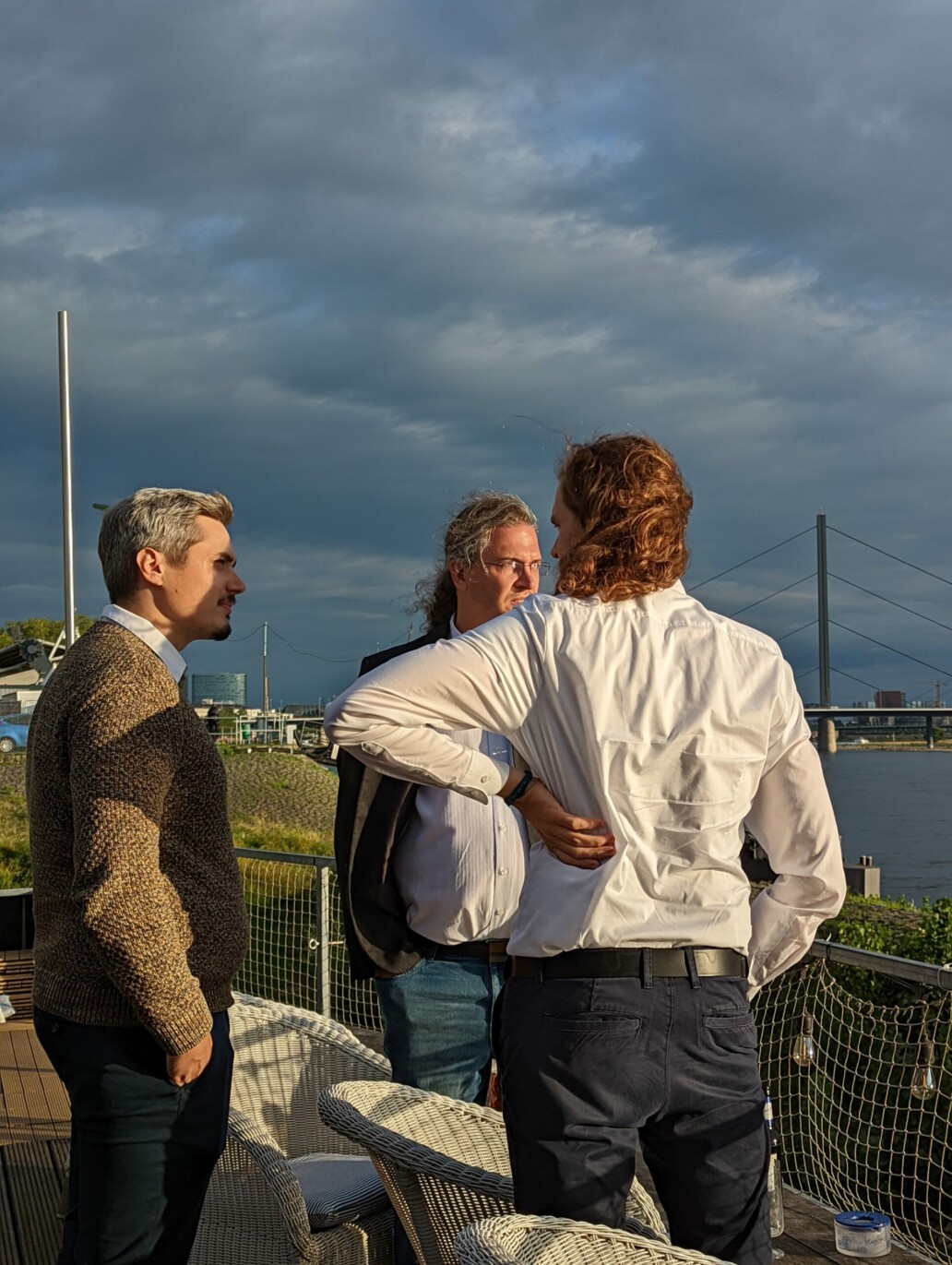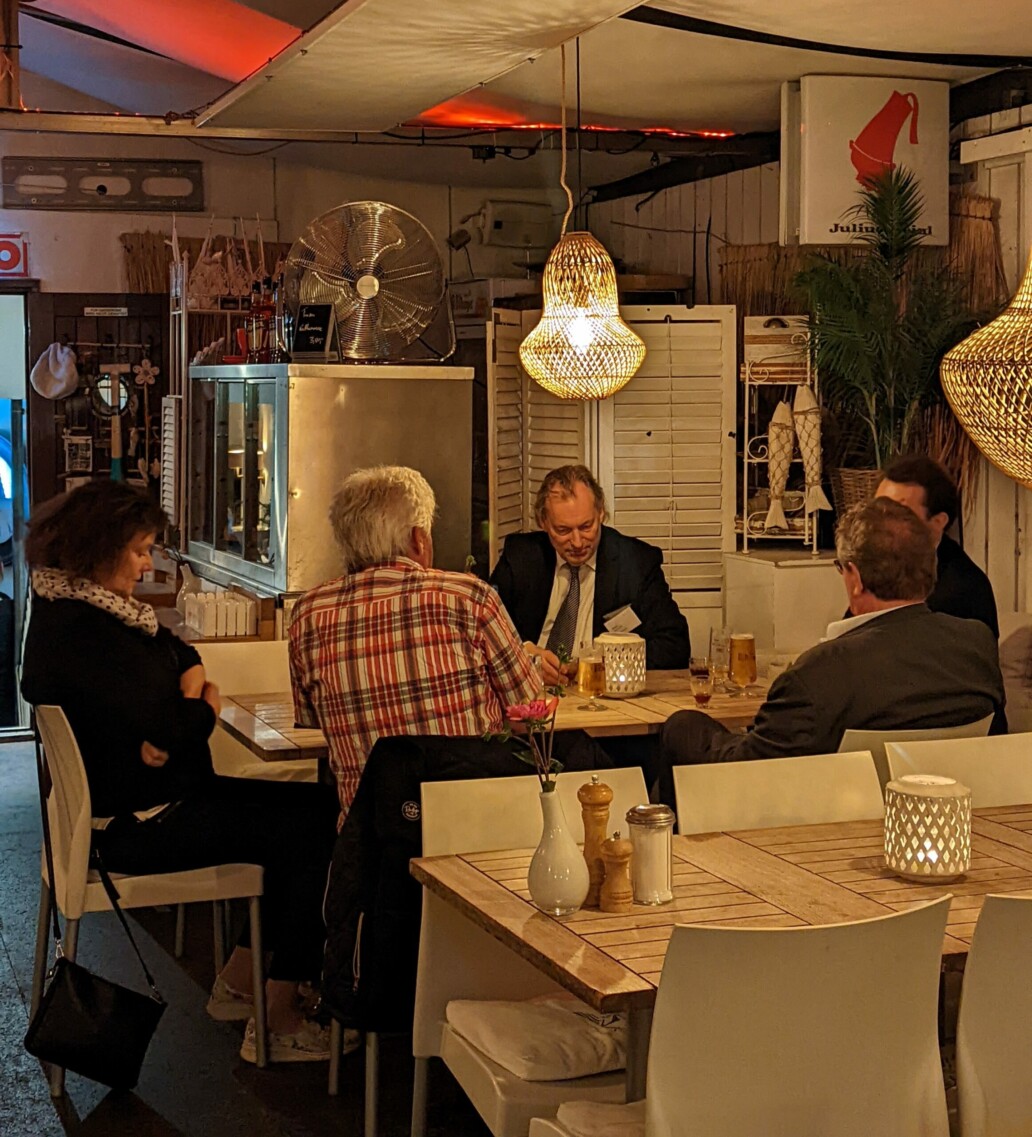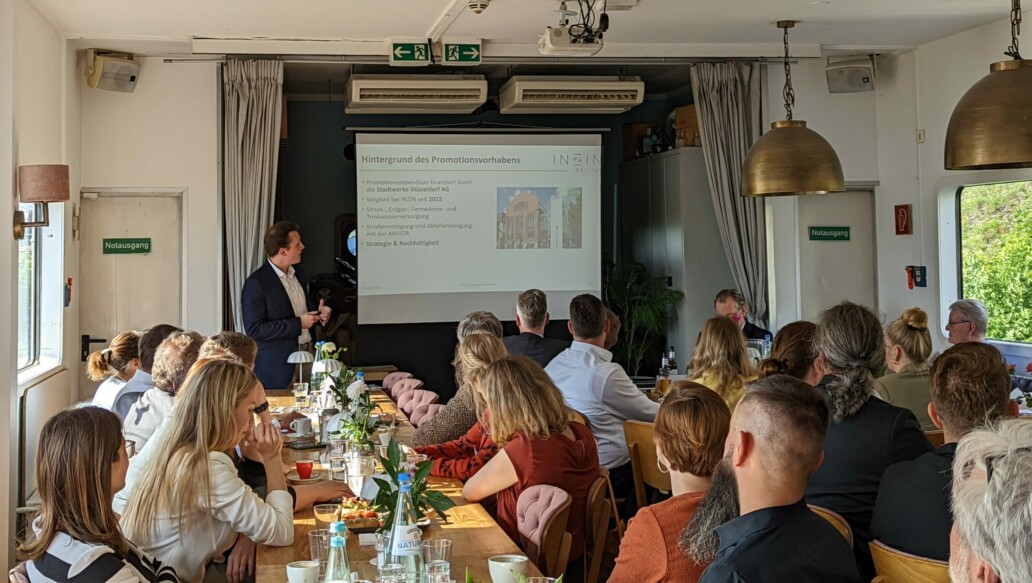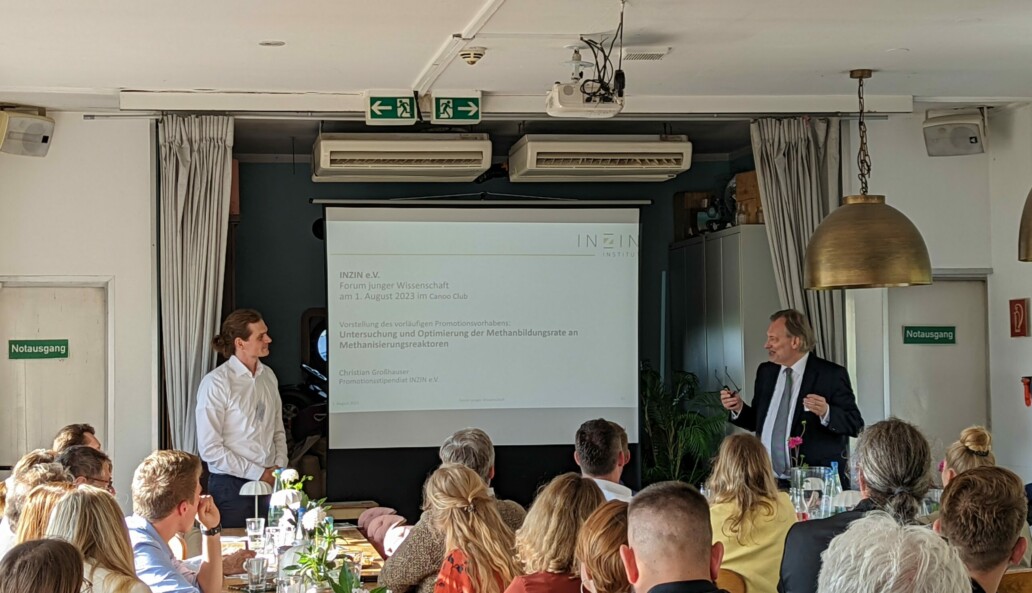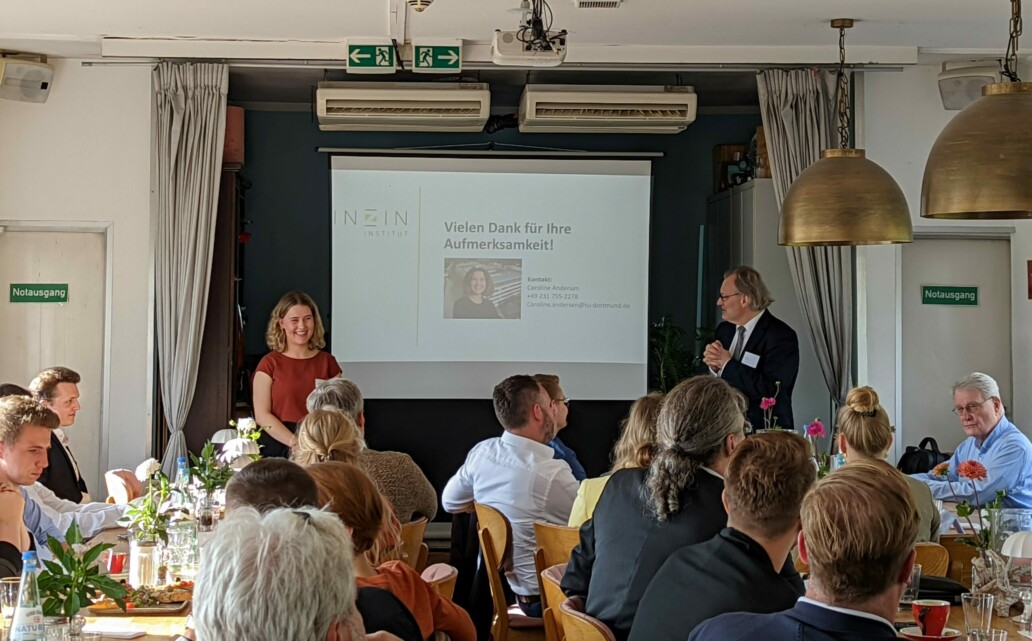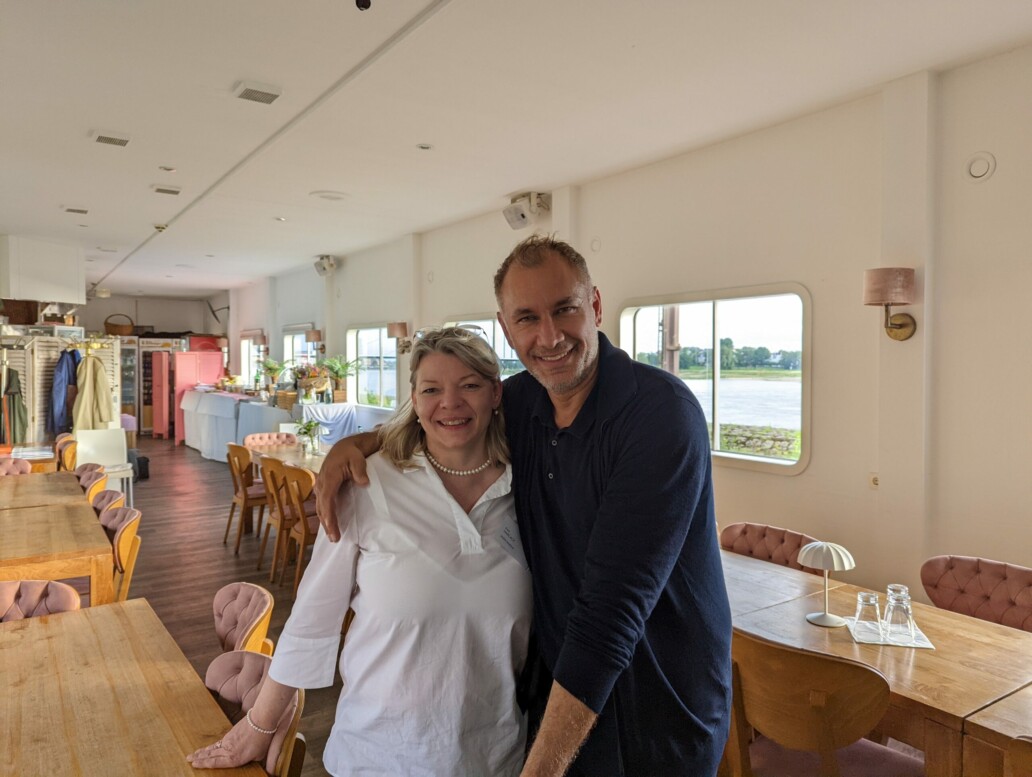Next Economy Award
Cara Schönmüller

Since 2015, the German Sustainability Award Foundation has presented the Next Economy Award, the top award for start-ups that focus on sustainability and the green economy. On 24 November 2023, the NEA will once again be presented in Düsseldorf as part of German Sustainability Day. The award honours start-ups that drive social and ecological transformation with innovative business models.
Prof. Dr. Martin Faulstich, together with Domitila Barros, Hilda Liswani, Kristina Jeromin, Prof. Dr. Stefan Schaltegger, Dr. Peter Vocke, Beatrice Rodenstock, Felix Harteneck, Martin Bornholdt and Dr. Ralf Düssel, is part of the high-calibre jury that will decide on the awarding of the prize on 24 November.
This year’s finalists are alcemy GmbH, Concular GmbH, Engeryminer GmbH, Fiber Europe Management GmbH / T-Trench Technik Deutschland GmbH, Grünfuchs GmbH and Plastic Fischer GmbH.
We are looking forward to the event! Incidentally, the conference audience can also vote for their favourite.
All further information can be found here.
Christian Großhauser
Cara Schönmüller
Graduate industrial engineer
E-mail: christian.grosshauser(at)inzin.de
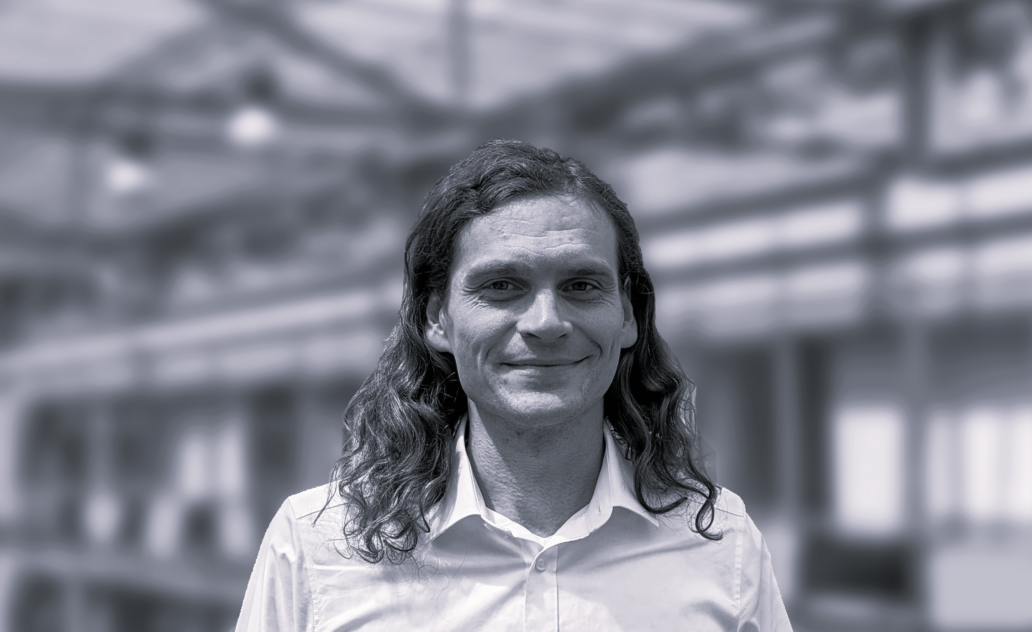
Vita
Christian Großhauser was born in Mallersdorf-Pfaffenberg in 1985 and has been a scholarship holder at the INZIN Institute since May 2023. As part of the scholarship, he conducts research on the topic of “Investigation and optimization of the methane formation rate in methanation reactors” on a pilot plant of MicroPyros BioEnerTec GmbH in Straubing. This is intended to make an important contribution to the green energy transition. Parallel to this research project, he continues to work as a project manager at Straubinger Energie- und Reststoffverwertungs GmbH (SER GmbH). There he works in the fields of wastewater treatment, (thermal) sewage sludge disposal, phosphorus recovery and energy generation from biogenic materials. He completed his degree in industrial engineering with a focus on mechanical engineering at Kempten University of Applied Sciences in 2015. Before making the switch to wastewater treatment, he gained years of experience in the automotive industry.
Research topic
One of the most urgent challenges of the coming decades is and will remain human-induced climate change. In order to meet the ambitious climate targets and ensure a reliable and climate-friendly energy supply, energy production must be further diversified and important alternatives to burning fossil fuels must be taken to a new level. The conversion of waste into energy and thus the possibility of being able to use the existing infrastructure is the desirable goal. But how can this be achieved? The biogenic sector and biomethanization offer opportunities that can make a decisive contribution to the green energy transition by seizing and exploiting this potential. Power to methane is the key solution for making the electricity grid more flexible, as it can counteract the throttling of renewable energy production. In cooperation with MicroPyros BioEnerTec GmbH, a research and development facility on a pilot plant scale is being built on the site of the Straubing wastewater treatment plant. This plant can be used to research and develop biomethanization under real conditions in a variety of ways. Hydrogen and carbon dioxide are converted to methane by microbes, more precisely chemolithoautotrophic archaea. This “green” methane can then be used as a substitute for fossil natural gas and can be used in a wide variety of areas (buildings, transportation, energy generation or mobility). The aim of this doctorate is to specify the framework conditions for a stable, reproducible and safe biomethanation process in order to ensure the operation of future biomethanation plants and thus make a further and important contribution to biomass use and the climate neutrality of tomorrow.
Supervision
Place of doctorate: Faculty of Spatial Planning, Technical University of Dortmund
Keywords
Sustainability, Waste to Energy, Waste management, power to methane, biomethanization
Closing event for the ‘Recycled Raw Materials Dialogue Platform’
Cara Schönmüller
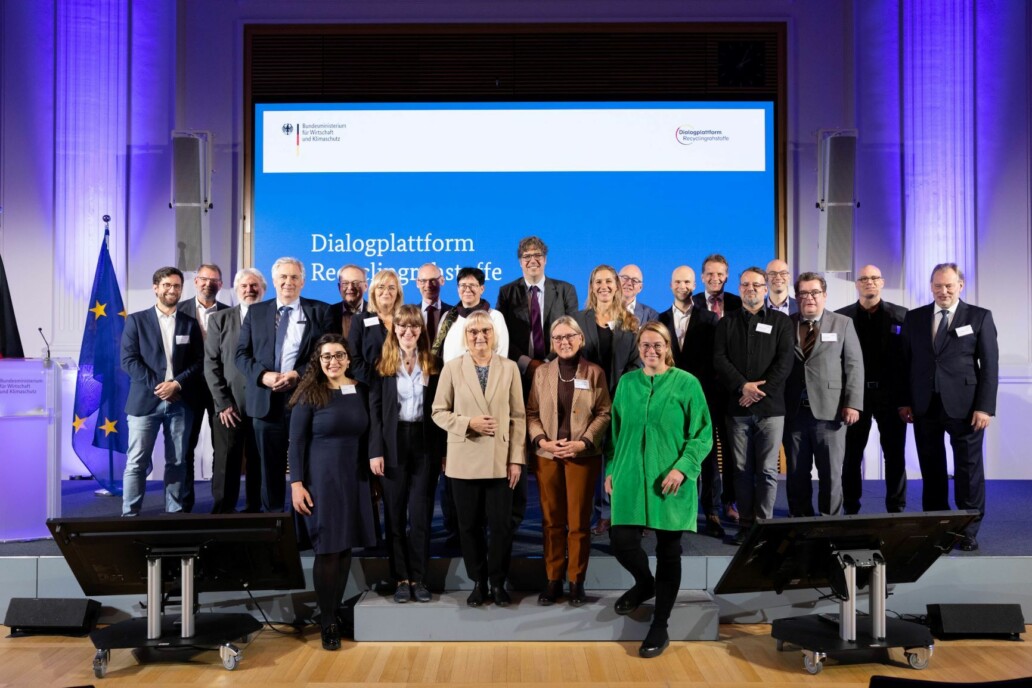
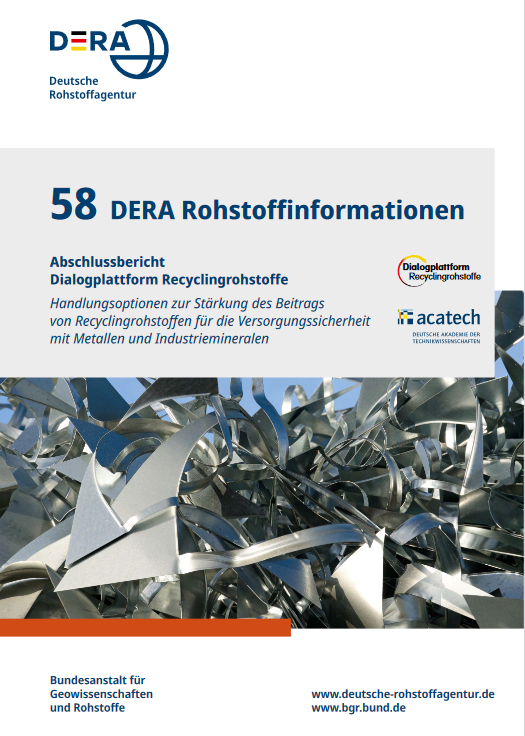
On 19 October 2023, the final report of the Recycling Raw Materials Dialogue Platform was ceremoniously presented at the Federal Ministry for Economic Affairs and Climate Protection. This report sets out detailed options for action designed to help improve the recycling of metals and industrial minerals.
Many thanks to State Secretaries Michael Kellner from the BMWK and Bettina Hoffmann from the BMUV for supporting our efforts. We are delighted that the results will be incorporated into the National Raw Materials Strategy (NKWS) process and that our two years of work within the framework of this dialogue process has been positively received.
Many thanks also to our dedicated team members, our valued colleagues at the UBA and the external experts for their active support! Special thanks go to the leaders of the working groups and sub-working groups, who are all pictured in the photo.😊
The final report can be found here.
We are highly motivated and look forward to implementing the options for action. We still have a lot of work ahead of us!
SUMMIT Environmental Economy.NRW
Cara Schönmüller
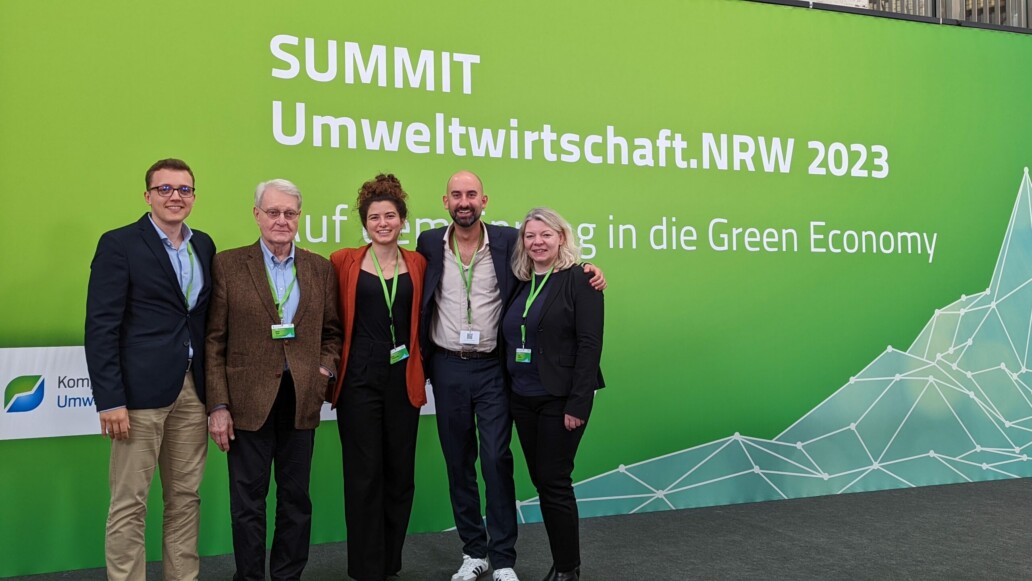
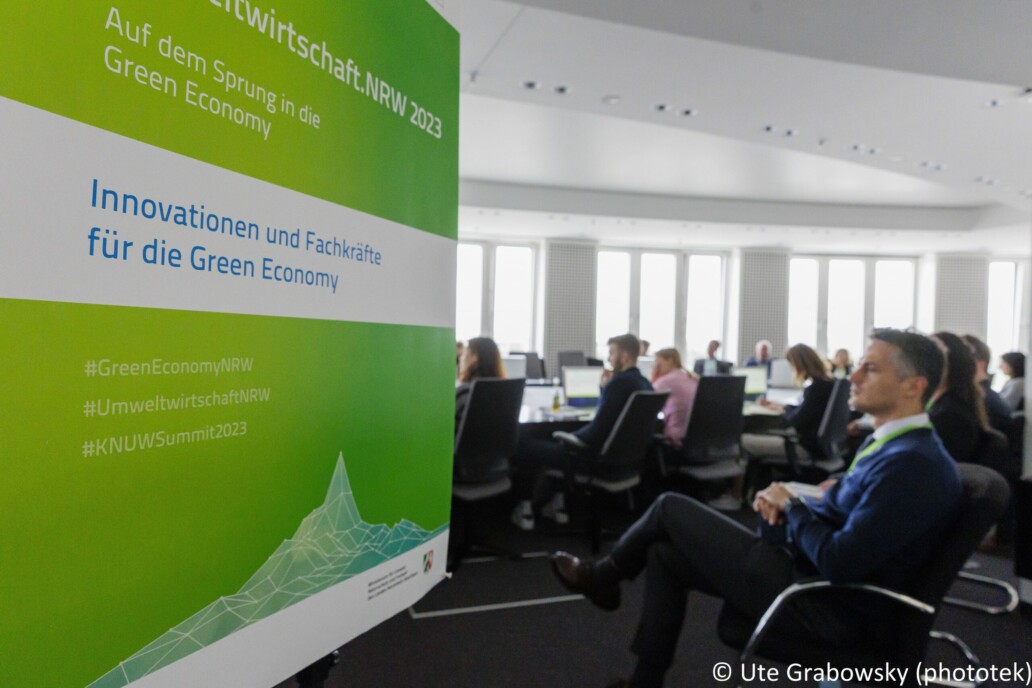
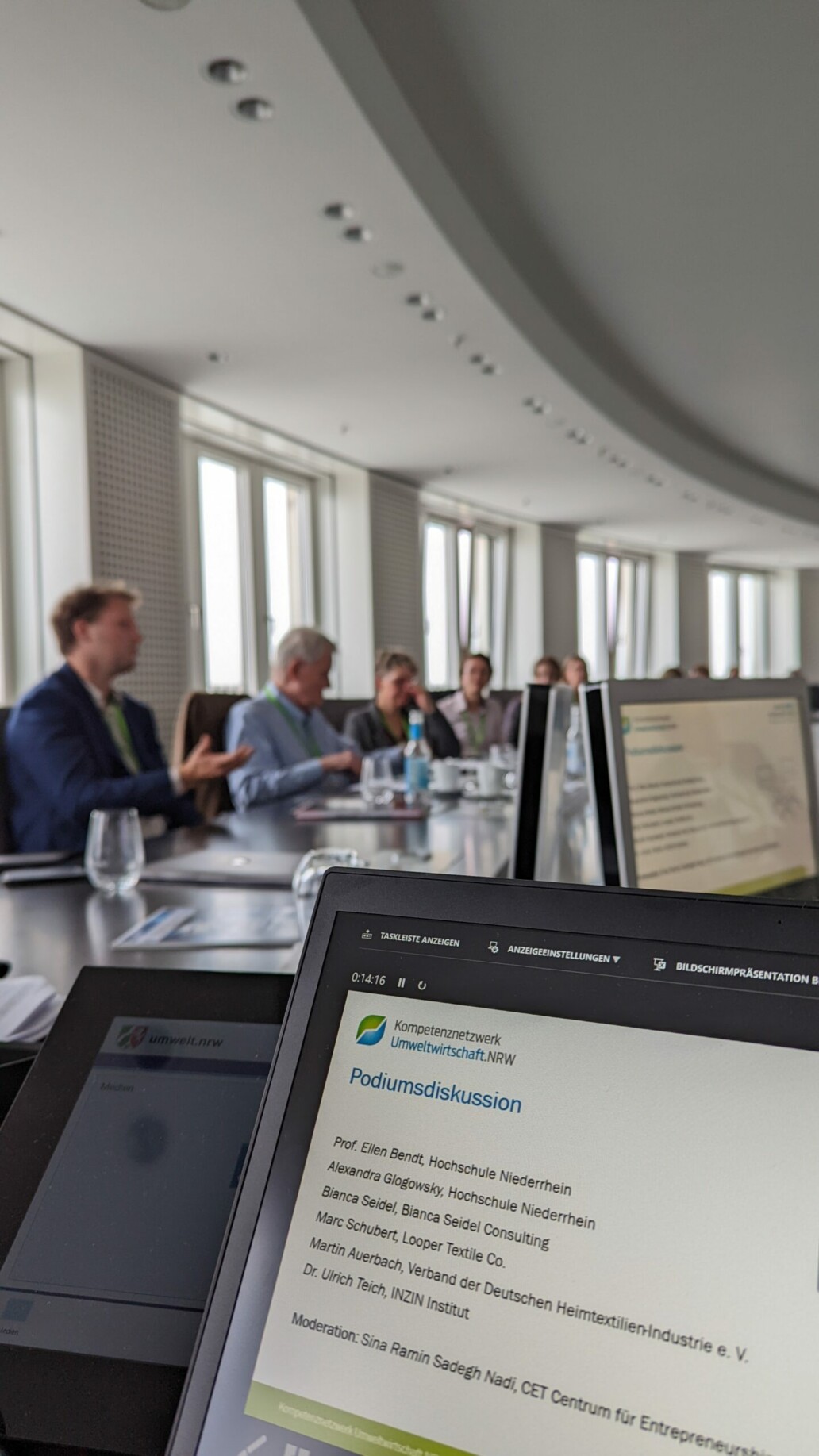
‘The transformation requires strategic clarity, investment and positive communication. We need to “communicate success” in order to encourage people to actively participate in this change,’ emphasised Oliver Krischer, Minister for the Environment and Transport of North Rhine-Westphalia, at this year’s SUMMIT Environmental Economy.NRW ‘This is how we can make the leap into the green economy.’
The SUMMIT, which took place on 19 October 2023 at the Ministry for the Environment, Nature Conservation and Transport of the State of North Rhine-Westphalia, presented current trends, funding information and selected innovations from the NRW environmental economy to more than 250 participants from business, science, politics and civil society, offering them comprehensive networking opportunities and new ideas.
In our expert session on ‘Innovations and skilled workers for the green economy’, RefresherBoxx, the Niederrhein University of Applied Sciences, Neonyt Düsseldorf and the Association of the German Home Textile Industry eV presented innovative approaches to the future of the textile industry. From the production of sustainable clothing made from materials such as algae and hemp, to exhibitions at sustainable fashion fairs and the resource-saving removal of bacteria and odours, to subsequent attempts to make textiles recyclable, participants in our specialist session were able to follow the challenges facing the textile industry throughout the product cycle.
In the concluding discussion, particular emphasis was placed on the importance of international cooperation in order to develop a common understanding of sustainability, implement innovative solutions and, in particular, attract workers and skilled personnel to the German economy.
We would like to take this opportunity to once again express our sincere thanks to all participants: Cornelius Laaser and Lara Wever from the Ministry of the Environment, Nature Conservation and Transport, Gernot Sümmermann from RefresherBoxx, Prof. Ellen Bendt and Alexandra Glogowsky from the Niederrhein University of Applied Sciences, Nicole Blank from Igedo Exhibitions, Bianca Seidel from Bianca Seidel Consulting, Marc Schubert from Looper Textile Co., Martin Auerbach from the Association of the German Home Textile Industry, and Dr Ulrich Teich from the INZIN Institute.
Special thanks go to our moderator Sina Ramin Sadegh Nadi, who guided us superbly through our session and ultimately masterfully managed to summarise the main topics concisely and comprehensively during the concluding TIL storm.
We are already looking forward to seeing you again next year!
The 8th Green Economy Summit will take place on 7 November 2024.
Congratulations on passing your doctoral examination
Cara Schönmüller
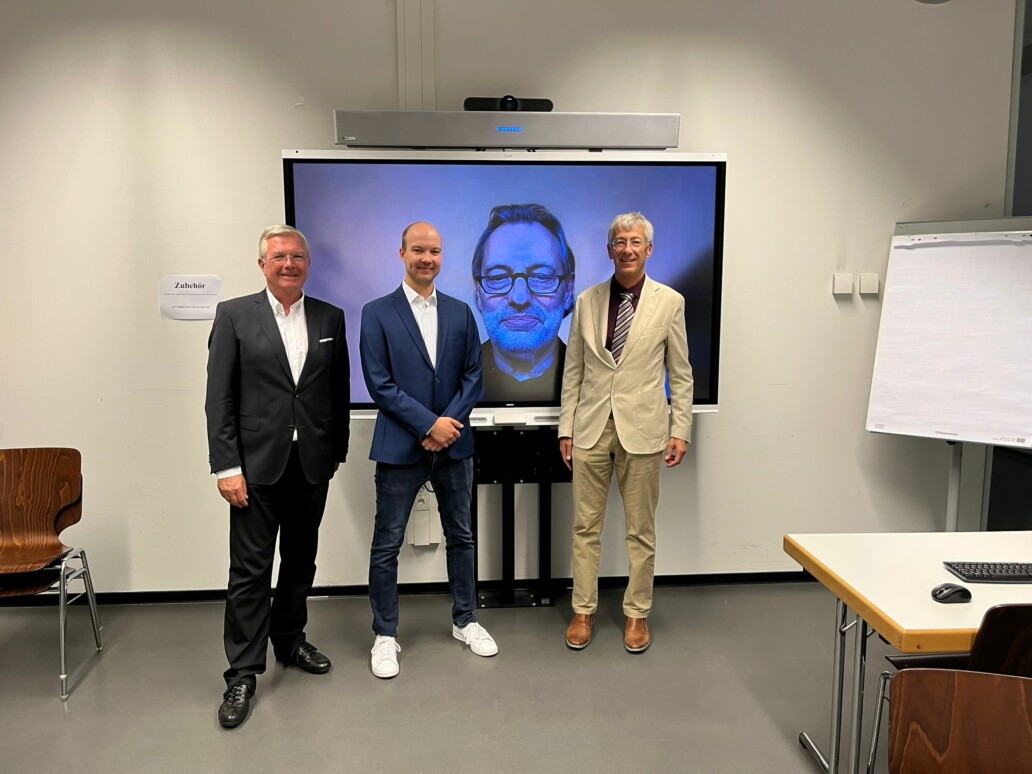
We congratulate and celebrate with our colleague Alexander Gönner. On 29 September 2023, he successfully passed his doctoral examination on the topic of ‘Development of a fibre optic belt conveyor for use in recycling plants’.
Examiners:
Prof. Dr. Martin Faulstich
Prof. Dr. Michael ten Hompel
We wish Mr Gönner all the best for his future!
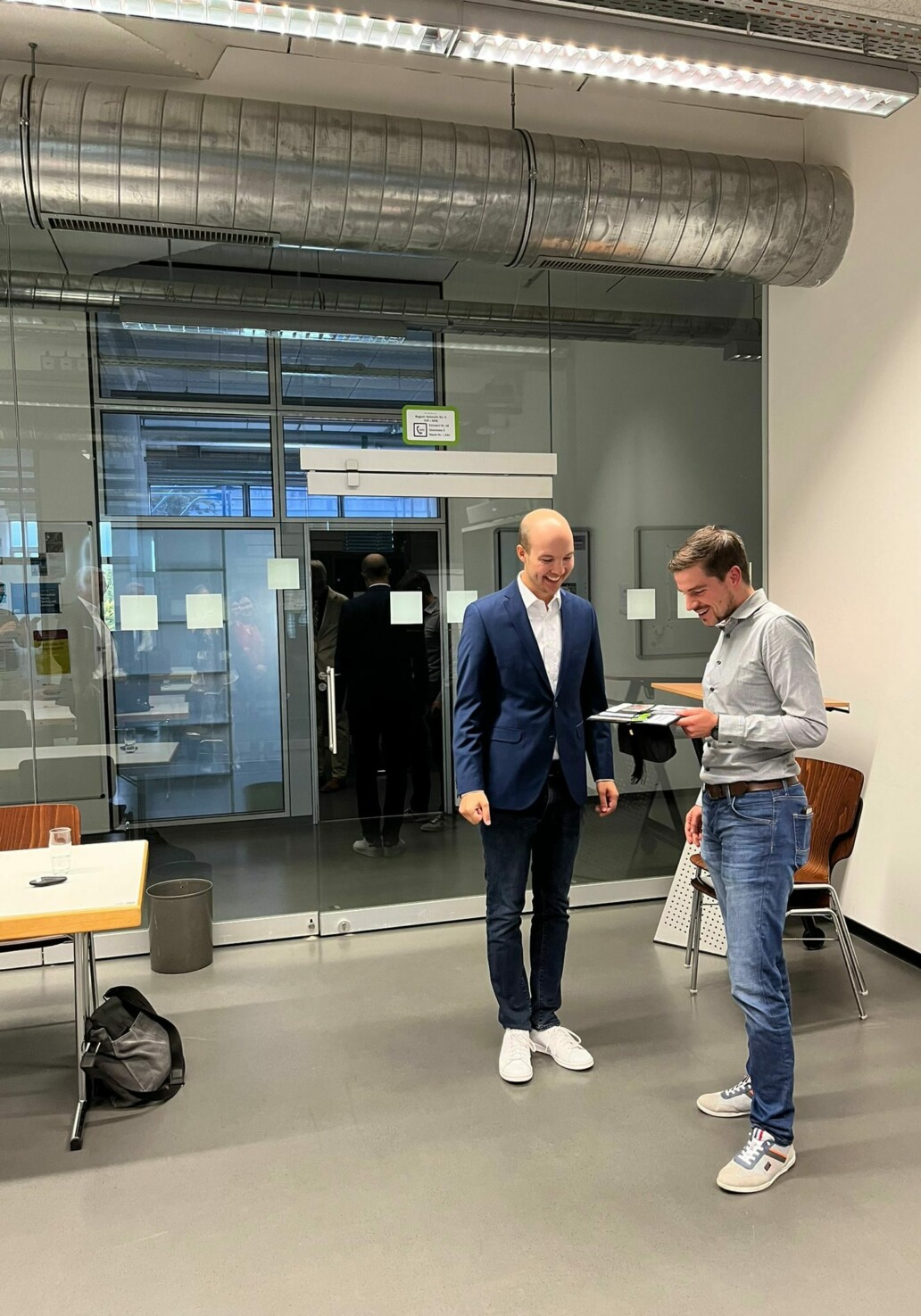
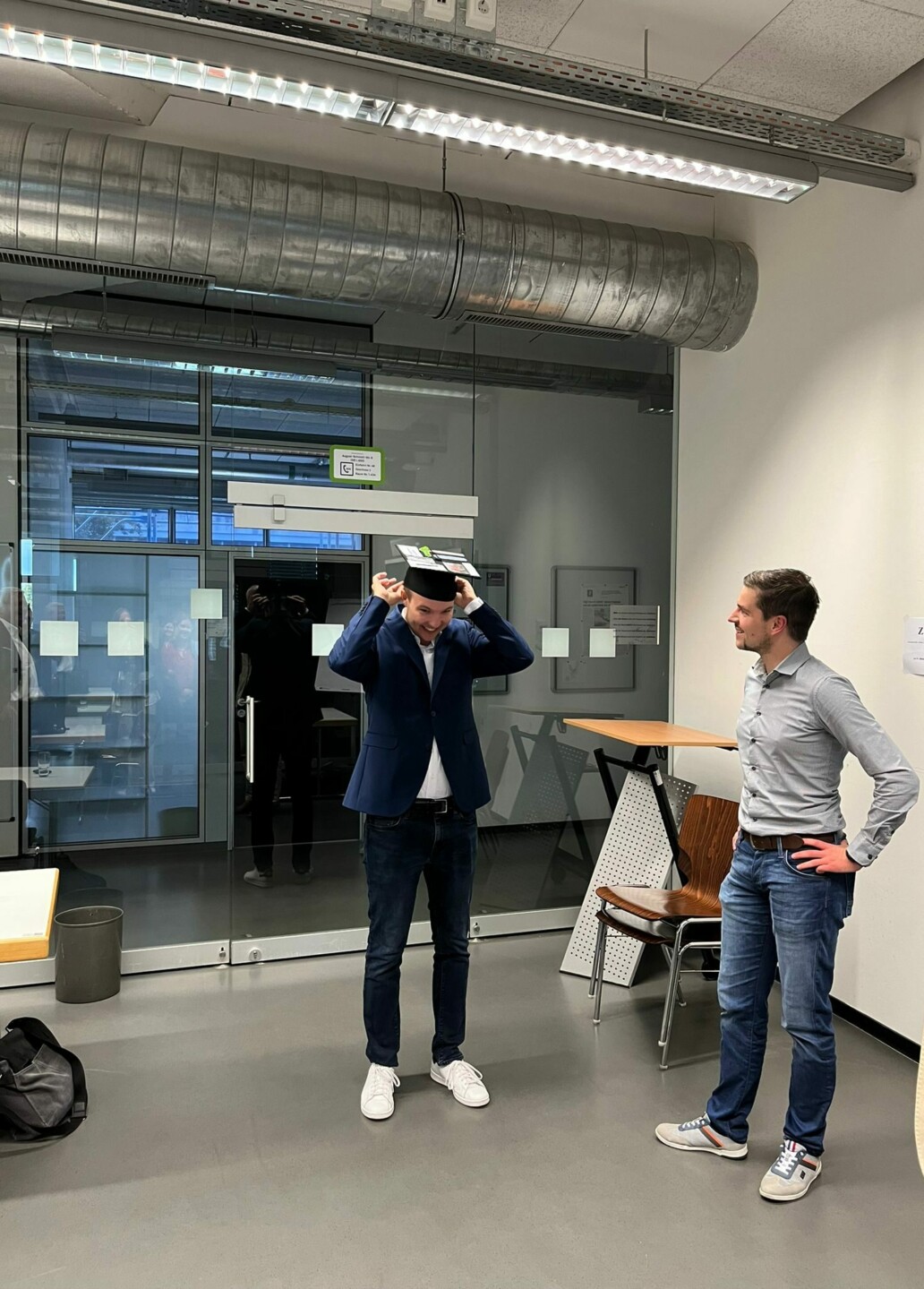
Sustainability Forum at EMO Hannover 2023
Cara Schönmüller
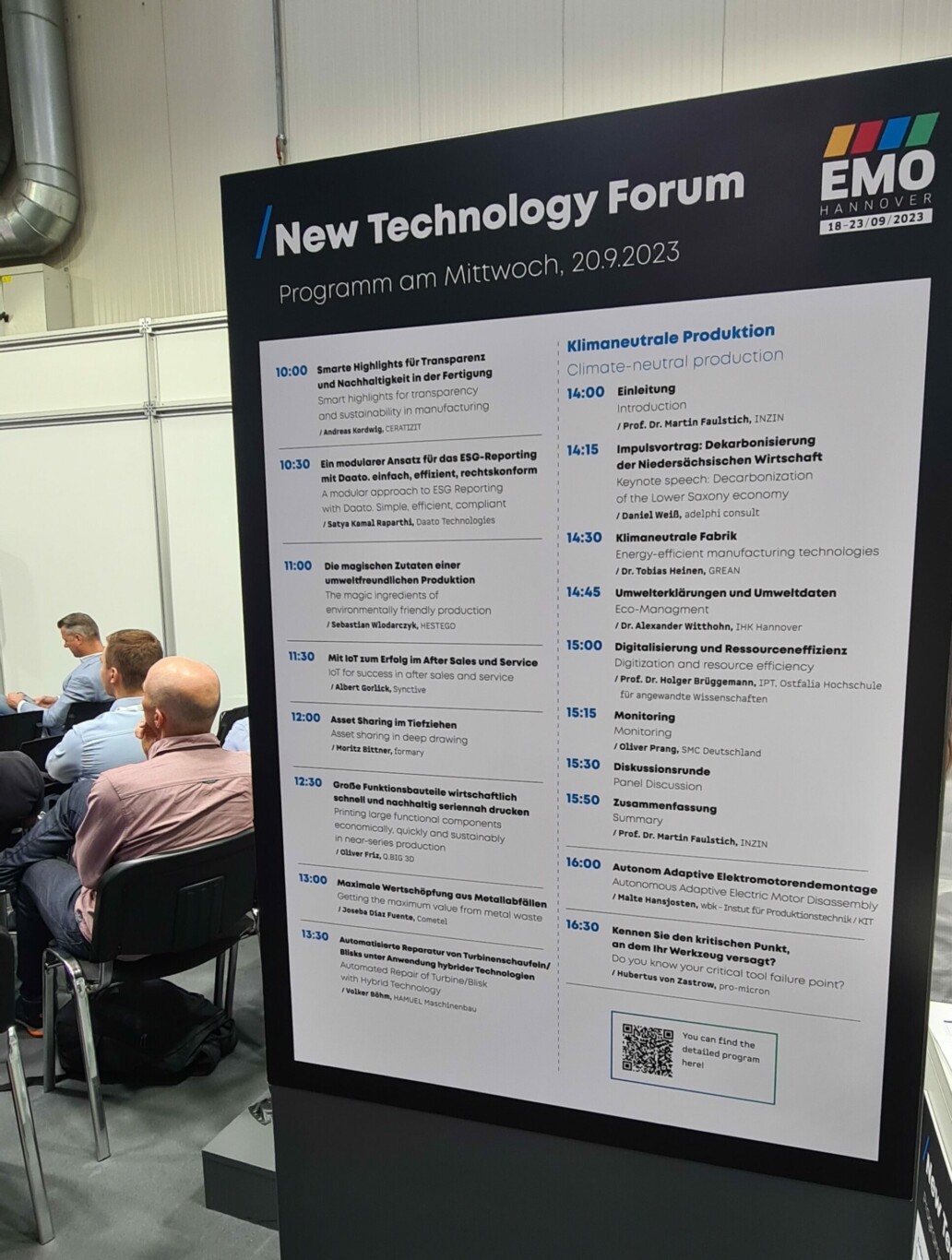
EMO Hannover 2023 is over and we look back on exciting discussions and presentations on the topics of ‘Climate-neutral production’, ‘The status and prospects of e-mobility’ and ‘Circular business models’.
We would like to take this opportunity to thank all participants for their contributions!
Germany is a leading global industrial location. The industrial sector is responsible for one-fifth of Germany’s greenhouse gas emissions. This requires adjustments to production processes as well as product and service systems. In recent decades, German industry has already made great strides in reducing CO2 emissions. The panel discussed how industry can actively shape the transformation towards climate-neutral production through the use of new technologies and on the basis of secure data structures – without losing its strong position on the global market.
Climate-neutral production
In his keynote speech, Daniel Weiß (adelphi consult GmbH) presented the transformation study – Decarbonisation of Lower Saxony’s Economy. In subsequent presentations, Dr Tobias Heinen (GREAN GmbH) discussed climate-neutral factories, Dr Alexander Witthohn (Hanover Chamber of Industry and Commerce) discussed environmental statements and environmental data, Prof. Dr Holger Brüggemann (Ostfalia University of Applied Sciences) discussed digitalisation and resource efficiency, and Oliver Prang (SMC Deutschland GmbH) discussed compressed air savings. In the panel discussion that followed, participants discussed, among other things, the challenges companies face in converting their production, the potential that climate-neutral production offers for the reindustrialisation of urban areas, and what the future of production in Germany will look like in 2050.
Status and prospects of e-mobility
A keynote speech by Martin Duddek (NLStBV) on individual charging infrastructure concepts for the transport transition was followed by presentations by Prof. Dr. Lars-Oliver Gusig (Hanover University of Applied Sciences) on the acceptance of e-mobility, Dr. Sören C. Trümper (ADAC e. V.) on bidirectional charging, Florian Brandau (ENGINIUS GmbH) on fuel cell systems, and Thomas Maas (Stadtreinigung Hamburg) on alternative drive systems in the waste management industry. The subsequent panel discussion addressed topics such as the technical advances that need to be made to make e-mobility even more attractive, how the potential of fuel cells for commercial use is assessed, and what the future vision and development path for mobility looks like up to 2050.
Circular business models
In his keynote speech, Jens Loschwitz (BDE e. V.) presented the national circular economy strategy. This was followed by presentations by Dr Peter Jahns (Effizienz-Agentur NRW), Wei Min Wang (VDI Centre for Resource Efficiency), Markus Kühlert (Wuppertal Institute) and Klaus Hieronymi (Circular Economy Research GmbH) on the potential for resource efficiency and information services offered by the VDI ZRE, design for recycling, and reuse and recycling. In the concluding panel discussion, participants discussed, among other things, how the transformation from a linear to a circular economy can be achieved from the perspective of companies, what best practice examples already exist in industry and how these can be transferred to other sectors and companies.
We would also like to express our sincere thanks for the support provided by
Gerda Kneifel | VDW (Verein Deutscher Werkzeugmaschinenfabriken), Andrea Busch | Deutsche Messe AG, Green Economy Network.NRW
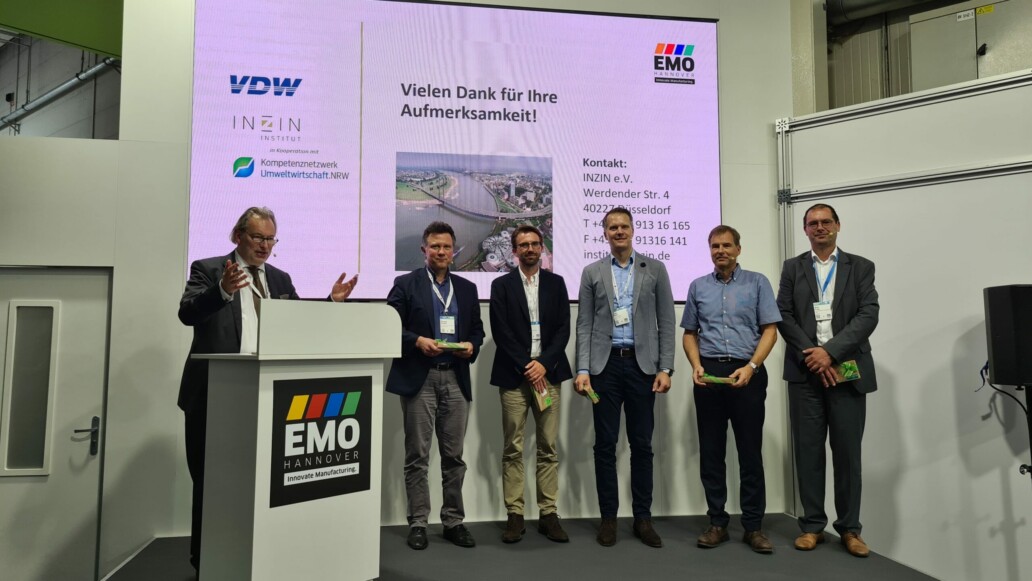
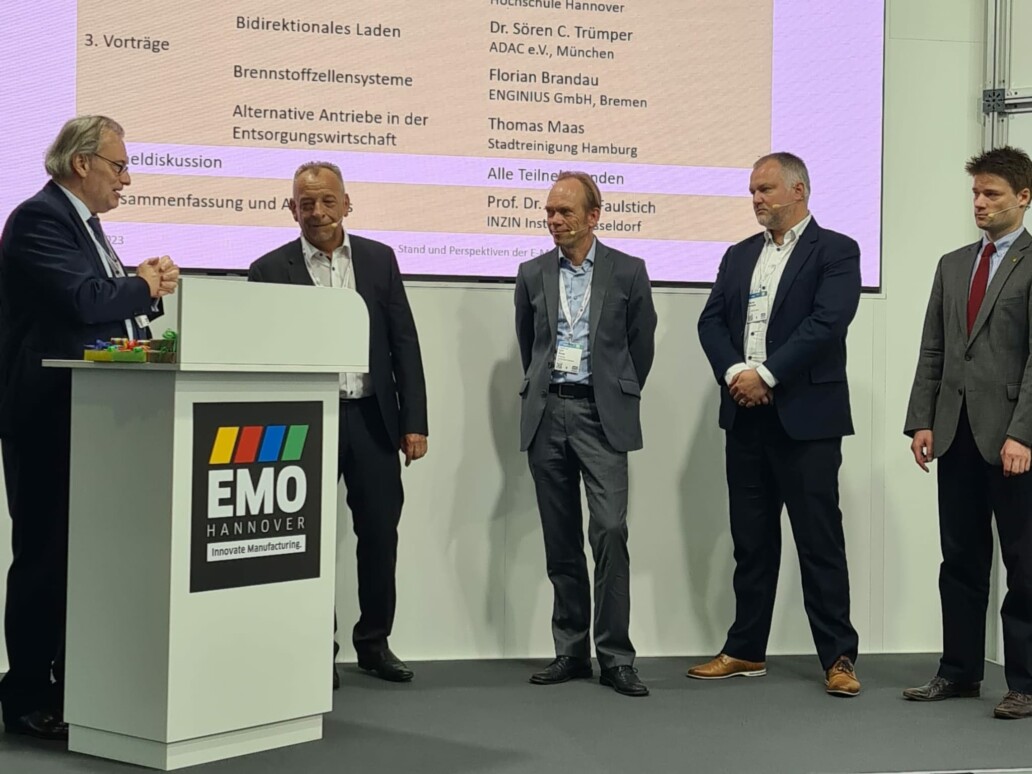
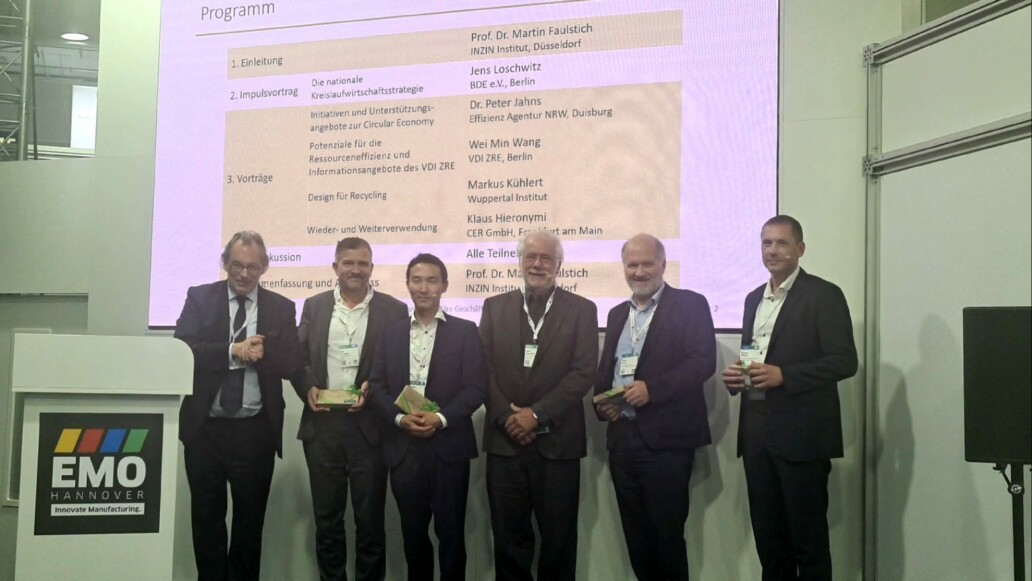
Sustainability Forum at EMO Hannover 2023
Cara Schönmüller
At EMO Hannover 2023, the INZIN Institute will present three events featuring lectures and panel discussions as part of the Sustainability Forum.
20 September 2023
2:00 p.m. – 4:30 p.m.: Climate-neutral production
Climate awareness, crisis resilience, customer requirements and legislation are among the key factors driving industry to reduce its energy consumption in production and become carbon neutral. This requires transparency not only about the consumption values of its own production facilities, but also about those process steps that go beyond the boundaries of the company. The panel will discuss how industry can actively shape the transformation towards climate-neutral production through the use of new technologies and on the basis of secure data structures.
With presentations by Dr Tobias Heinen (GREAN GmbH), Dr Alexander Witthohn (Hanover Chamber of Industry and Commerce), Prof. Dr Holger Brüggemann (Ostfalia University of Applied Sciences) and Petru-Cătălin Scafaru (Schaeffler AG).
21 September 2023
10:00 a.m. – 12:30 p.m.: Status and prospects of e-mobility
The Climate Protection Act stipulates that Germany should become greenhouse gas neutral by 2045. In addition to sectors such as energy and industry, the permissible annual CO2 emission levels for the transport sector will also be reduced.
The mobility of the future will require application-specific solutions that rely on energy from renewable sources. Experts will discuss what the future of mobility might look like and what challenges need to be overcome to achieve sector-specific climate targets during the panel discussion.
With presentations by Martin Duddek (Lower Saxony State Authority for Road Construction and Transport), Prof. Dr. Lars-Oliver Gusig (Hanover University of Applied Sciences), Dr. Sören Christian Trümper (ADAC e.V.) and Florian Brandau (ENGINIUS GmbH).
1:00 p.m. – 3:30 p.m.: Circular business models
The potential benefits for the manufacturing industry resulting from the transition from a linear to a circular economy range from environmental advantages to cost savings. In order to exploit these and other potential benefits, various circular economy concepts must be applied throughout the entire life cycle of a product.
How the interaction between production, distribution, consumption and recycling can be improved will be discussed in a panel discussion involving representatives from politics, business and science, who will pool their knowledge and practical experience of circular business models.
With presentations by Jens Loschwitz (Federal Association of the German Waste Management, Water and Recycling Industry), Cornelius Laaser (Ministry for the Environment, Nature Conservation and Transport of North Rhine-Westphalia), Wei Min Wang (VDI Centre for Resource Efficiency), Markus Kühlert (Wuppertal Institute) and Klaus Hieronymi (Circular Economy Research GmbH).
Venue: EMO Hannover, Hall 16, Stand No. F11, New Technology Forum
General Meeting, Young Science Forum Summer Party
Cara Schönmüller
A successful general meeting, a forum for young scientists and a fantastic summer party – these are yesterday’s highlights, which we look back on with great pleasure.
We would like to take this opportunity to once again express our sincere thanks to our doctoral students Konstantin Saure, Caroline Andersen and Christian Großhauser, who gave us an insight into their research work at the Young Scientists Forum.
We would also like to express our sincere gratitude to our members and all guests who support our projects and made the evening so special with their presence. The interesting discussions and positive atmosphere touched and motivated us greatly.
We are already looking forward to organising more exciting events and shaping the future of industrial society together with you!
